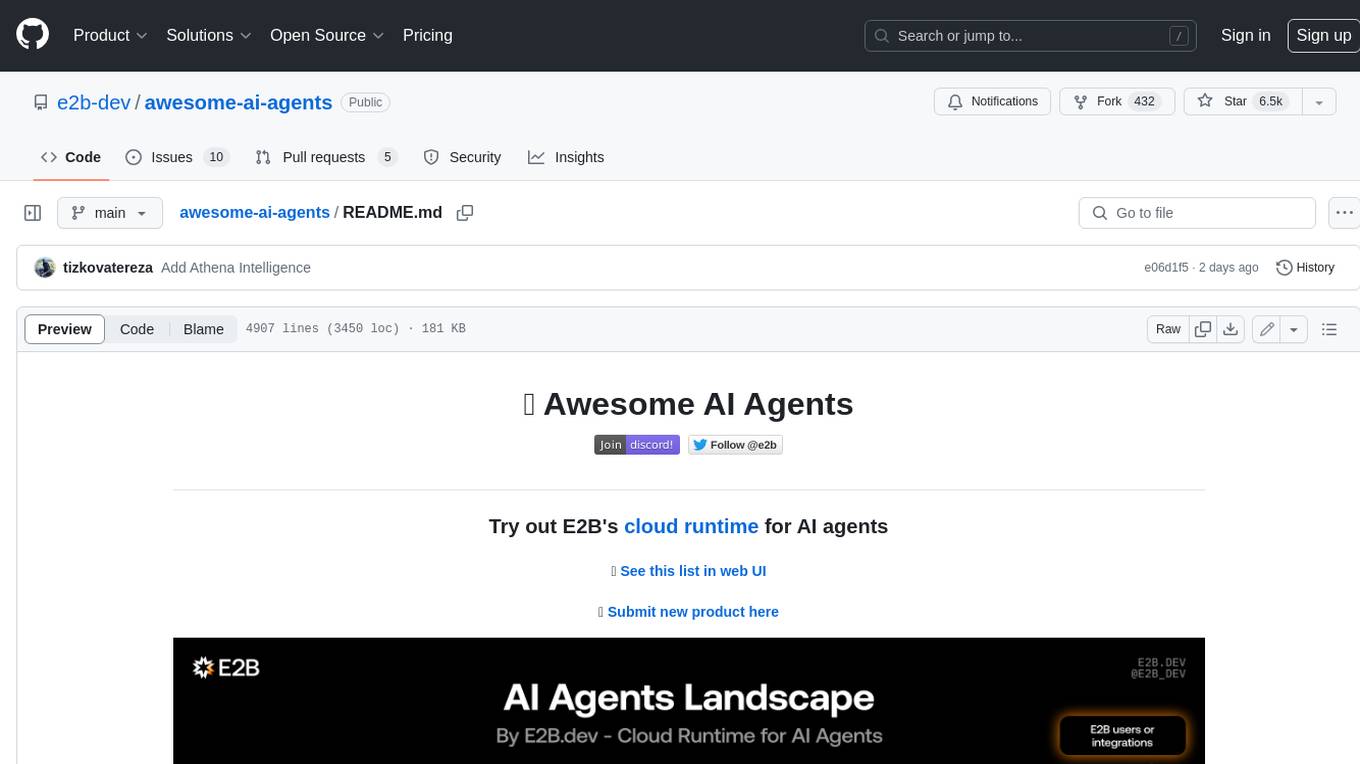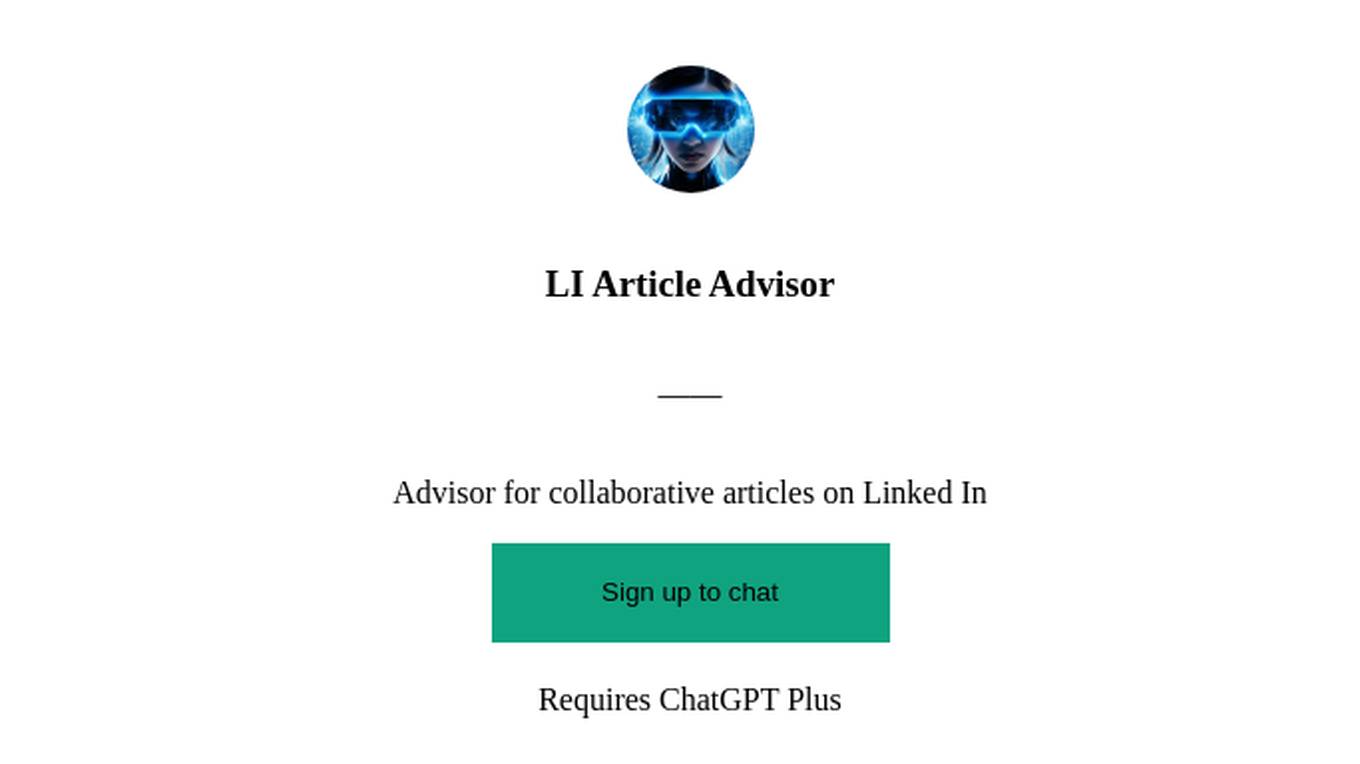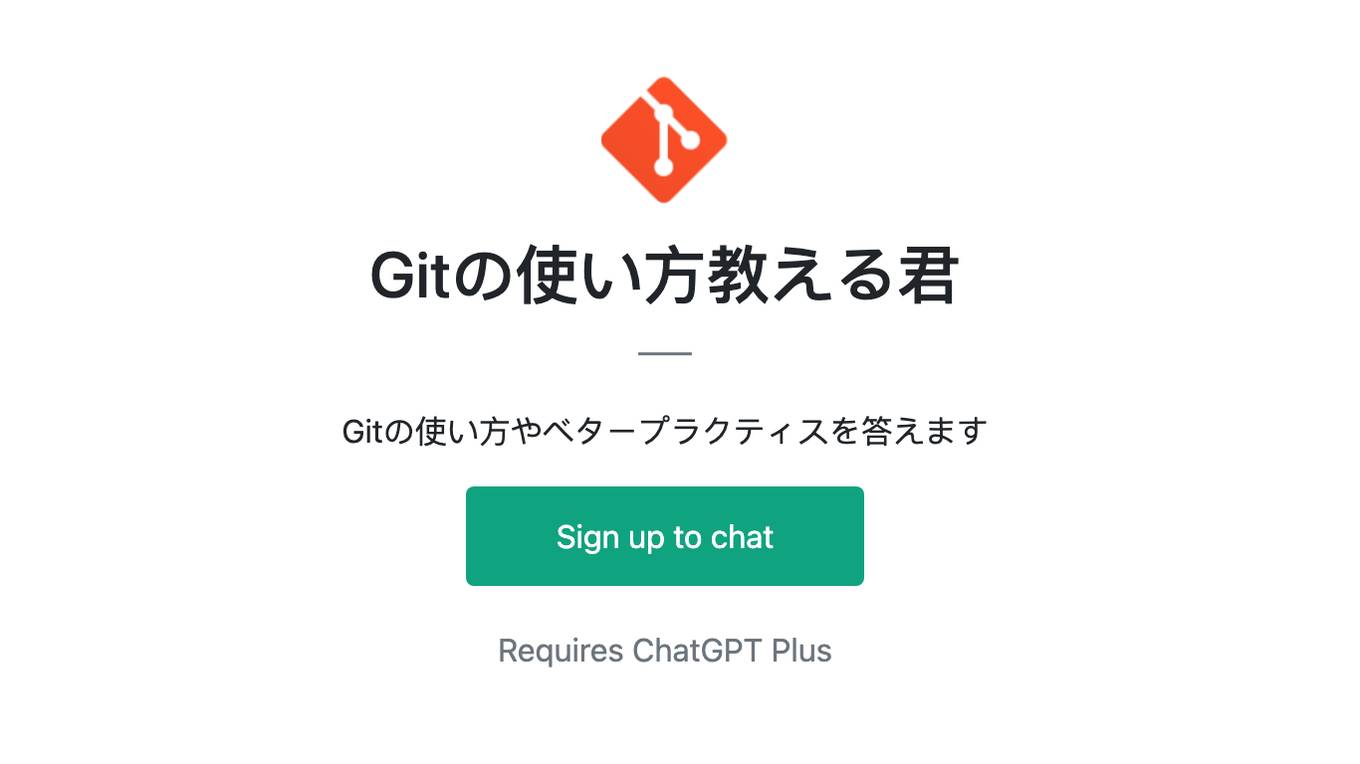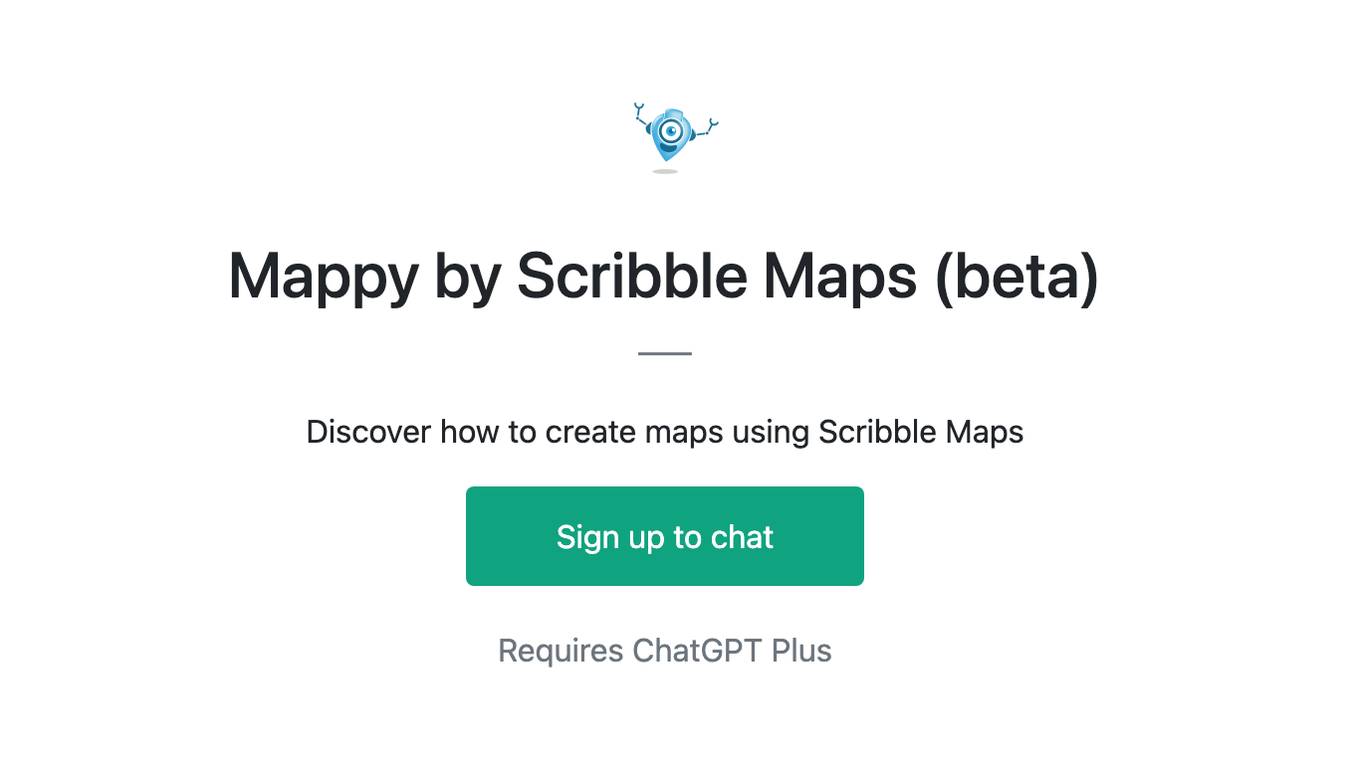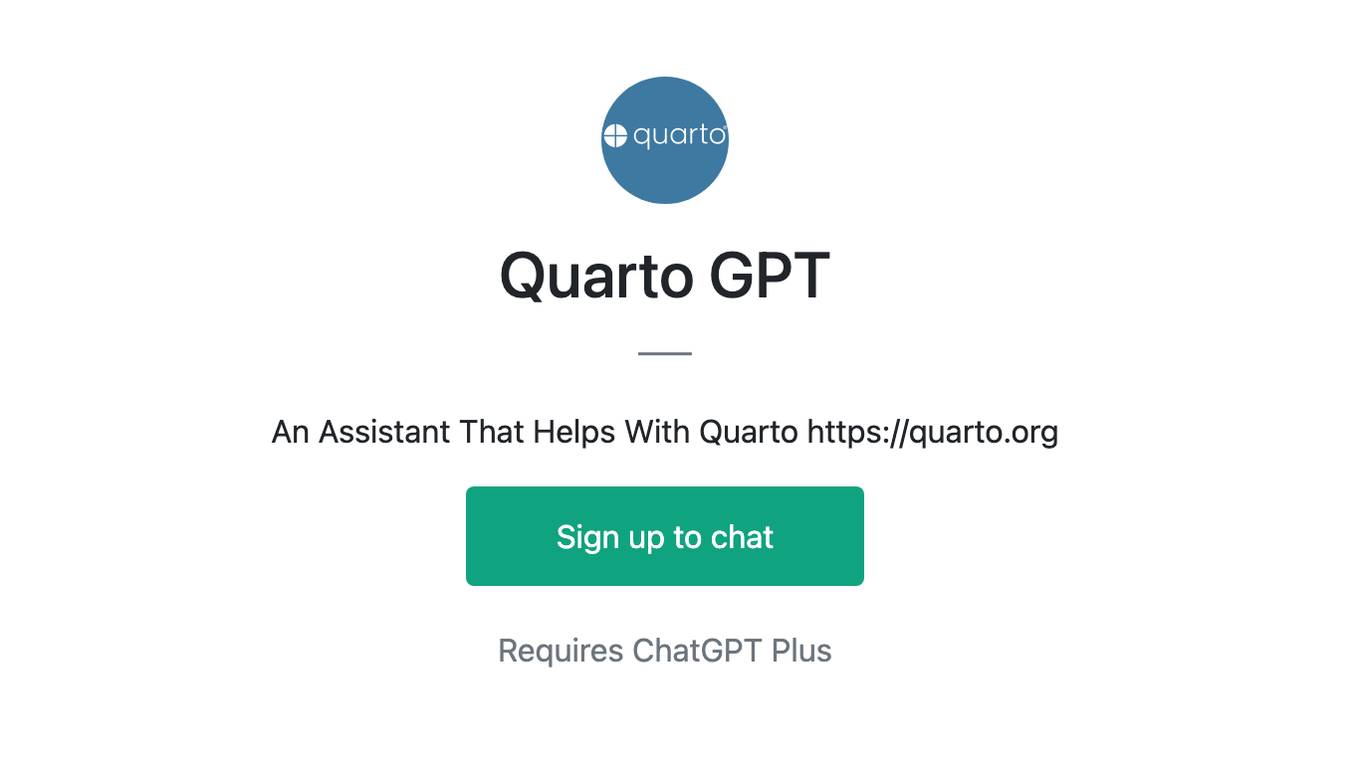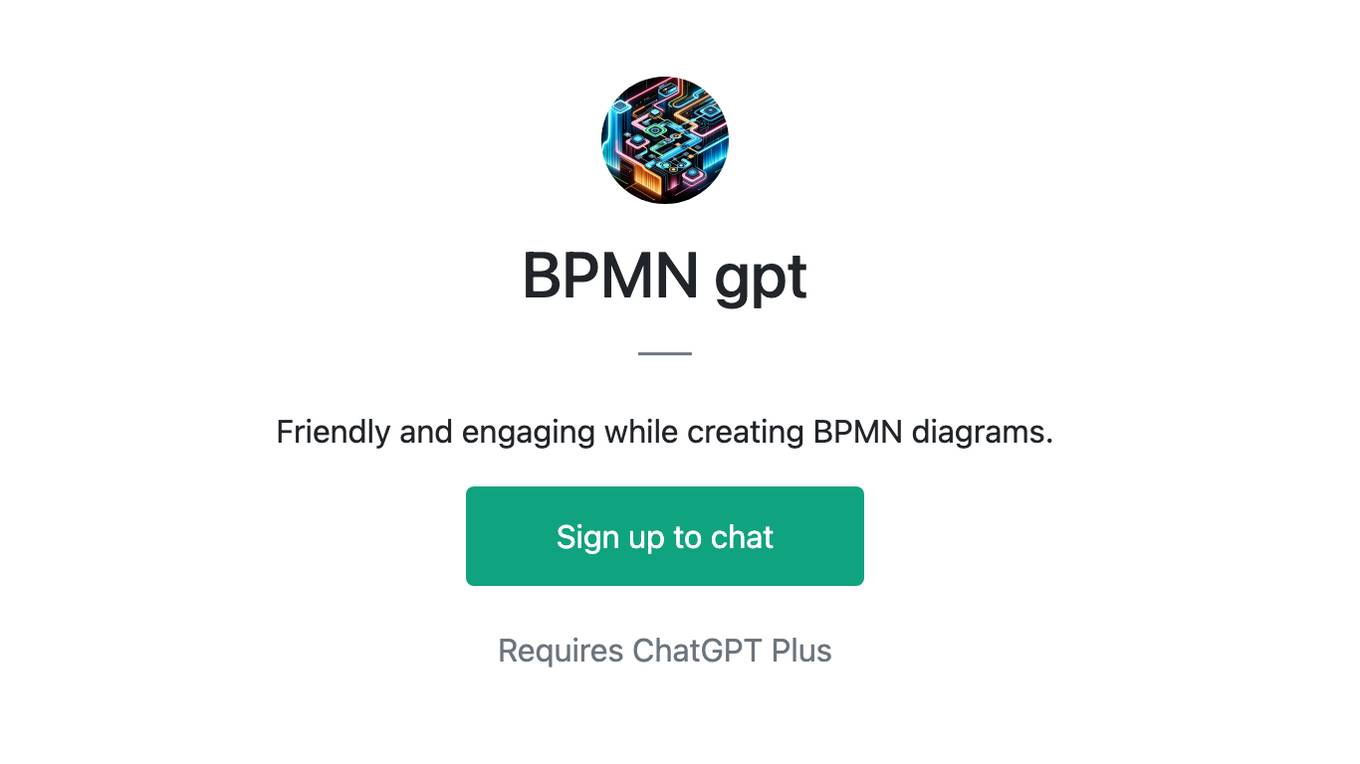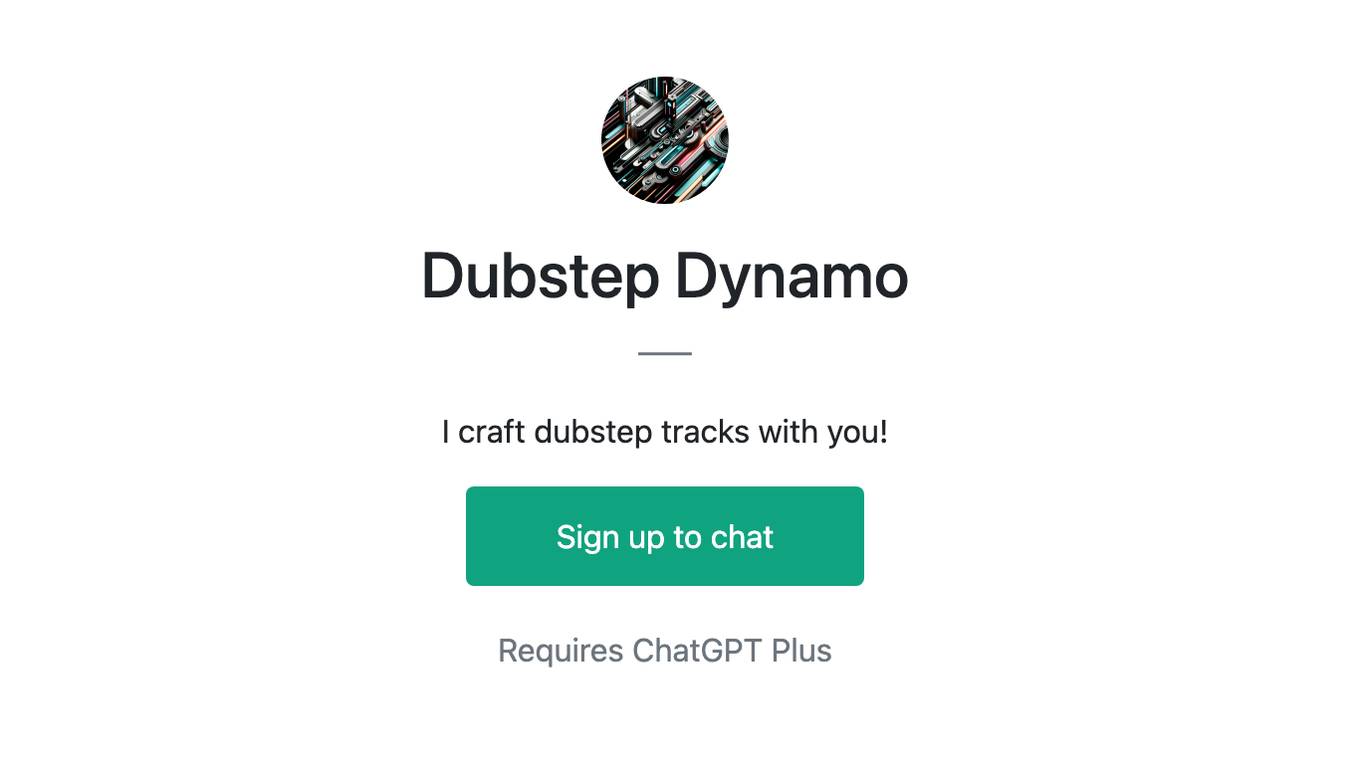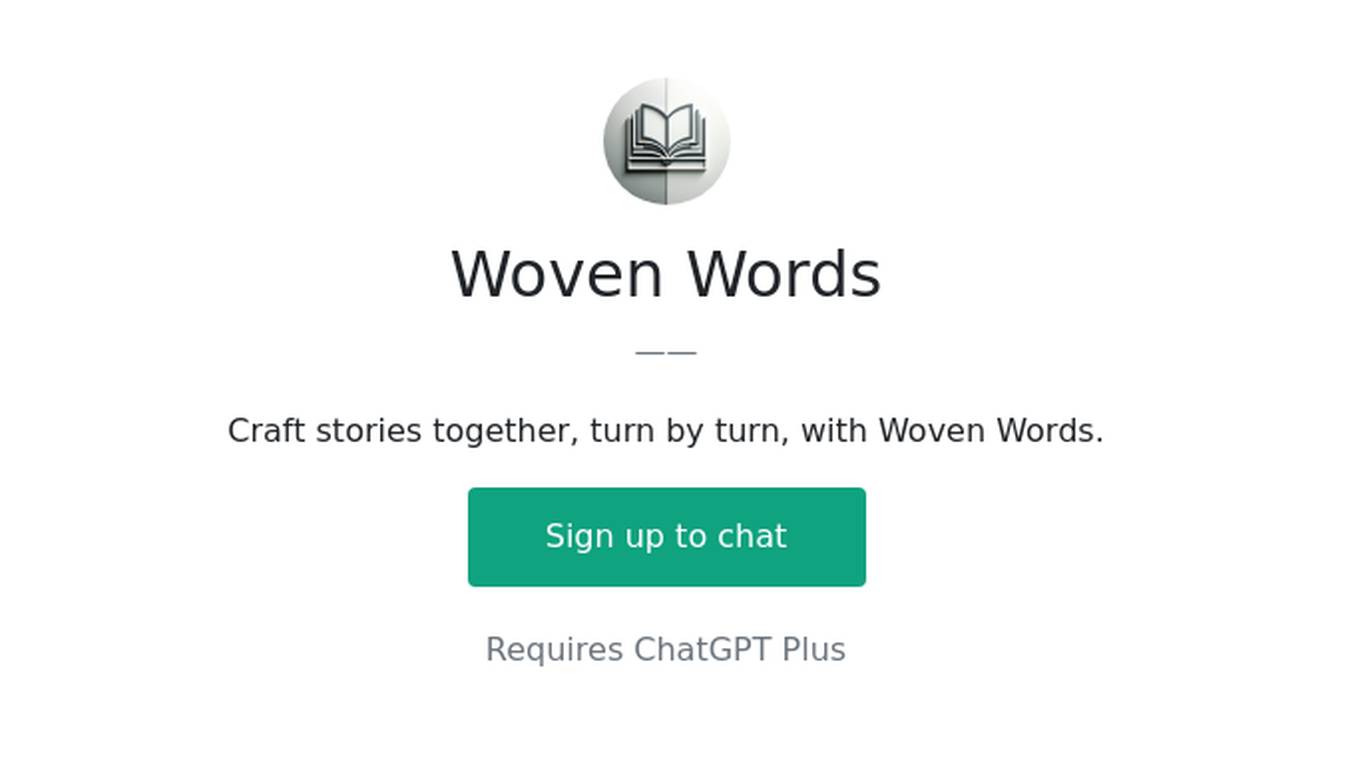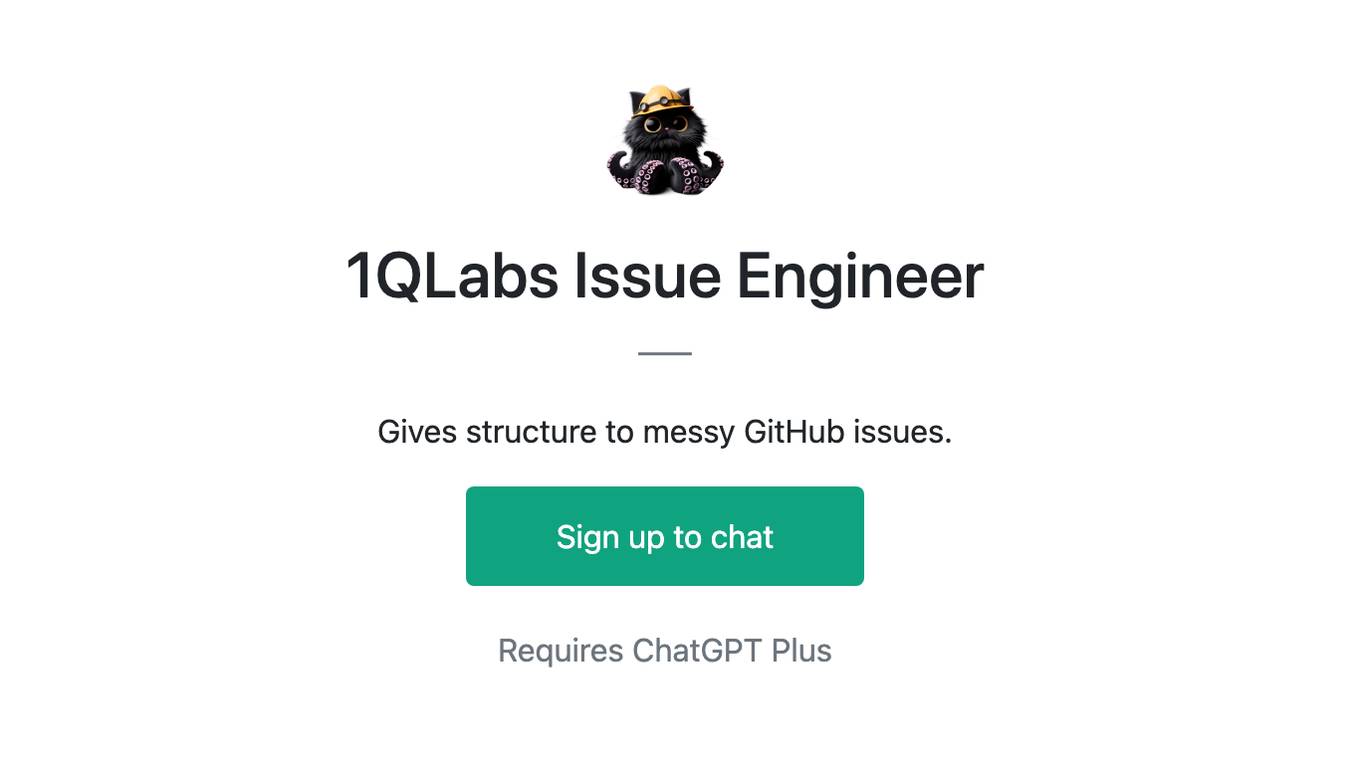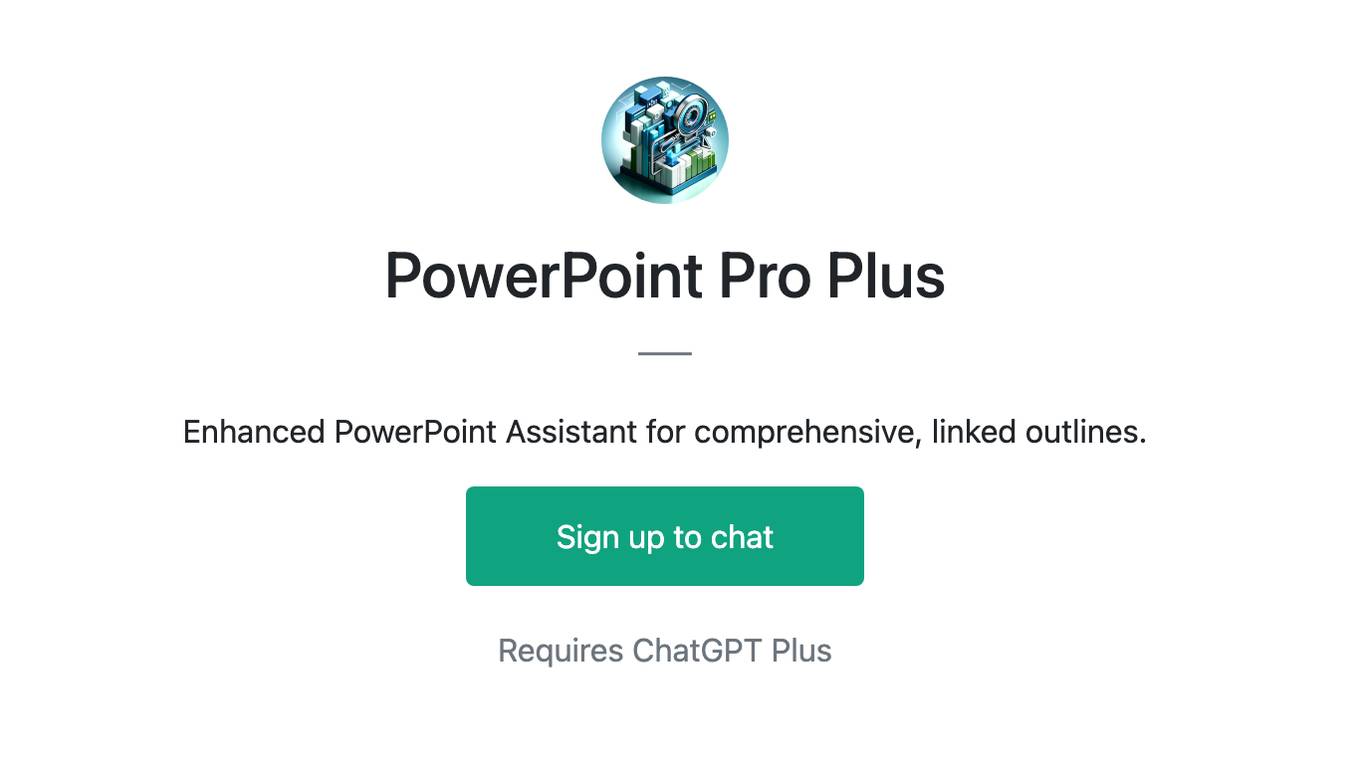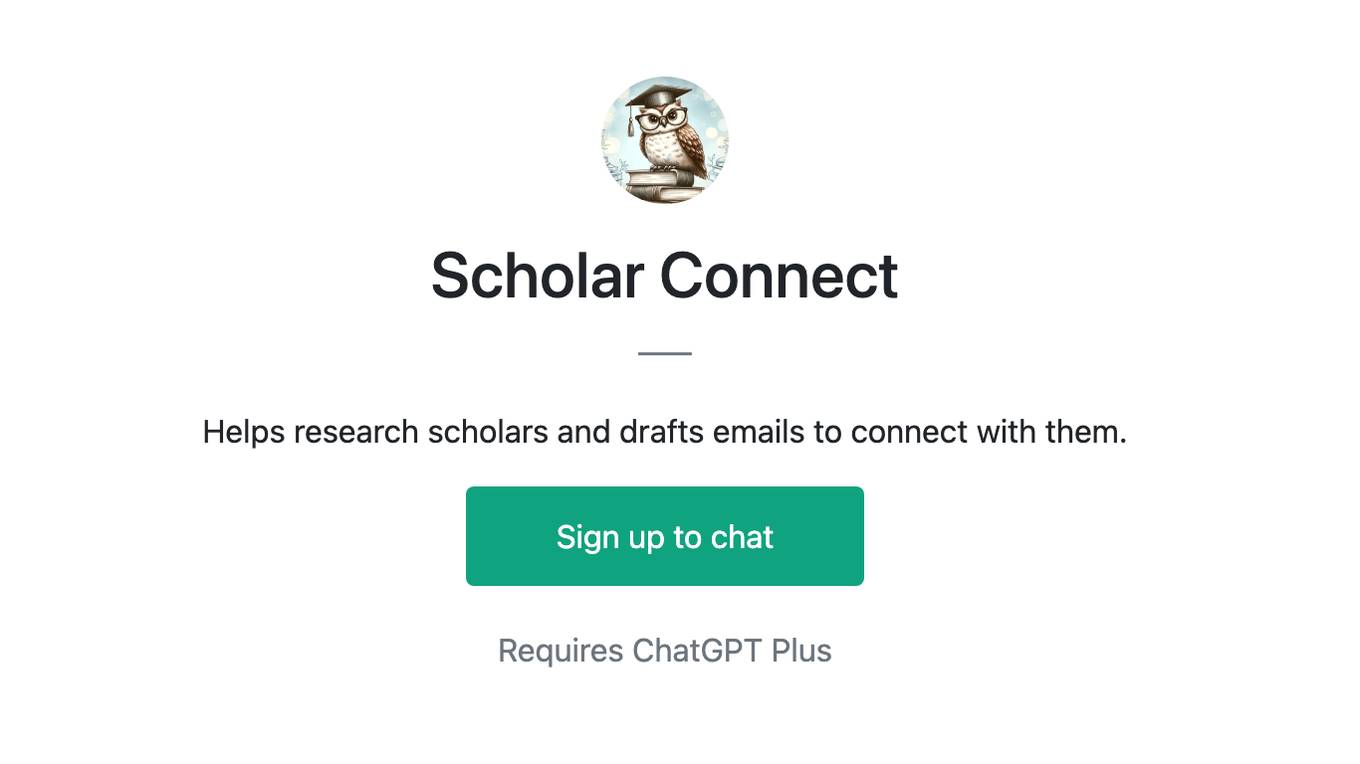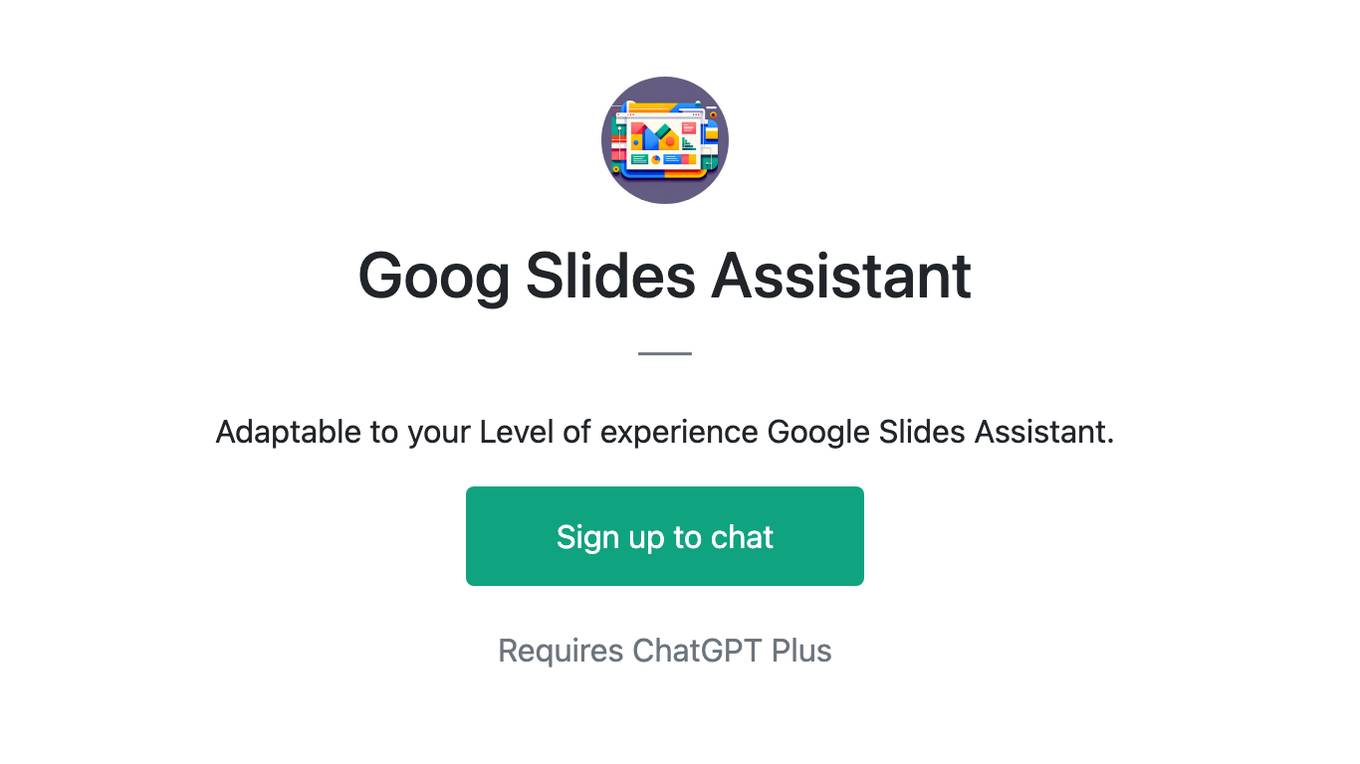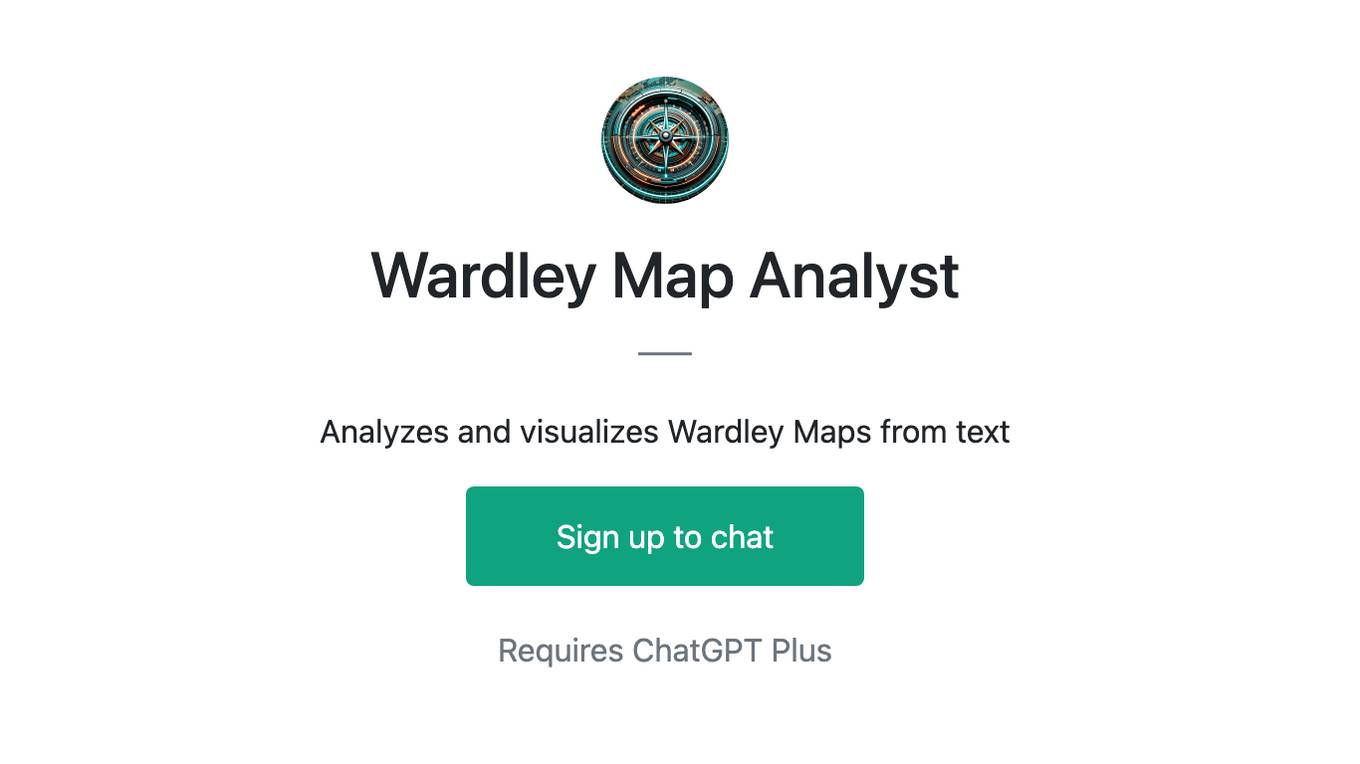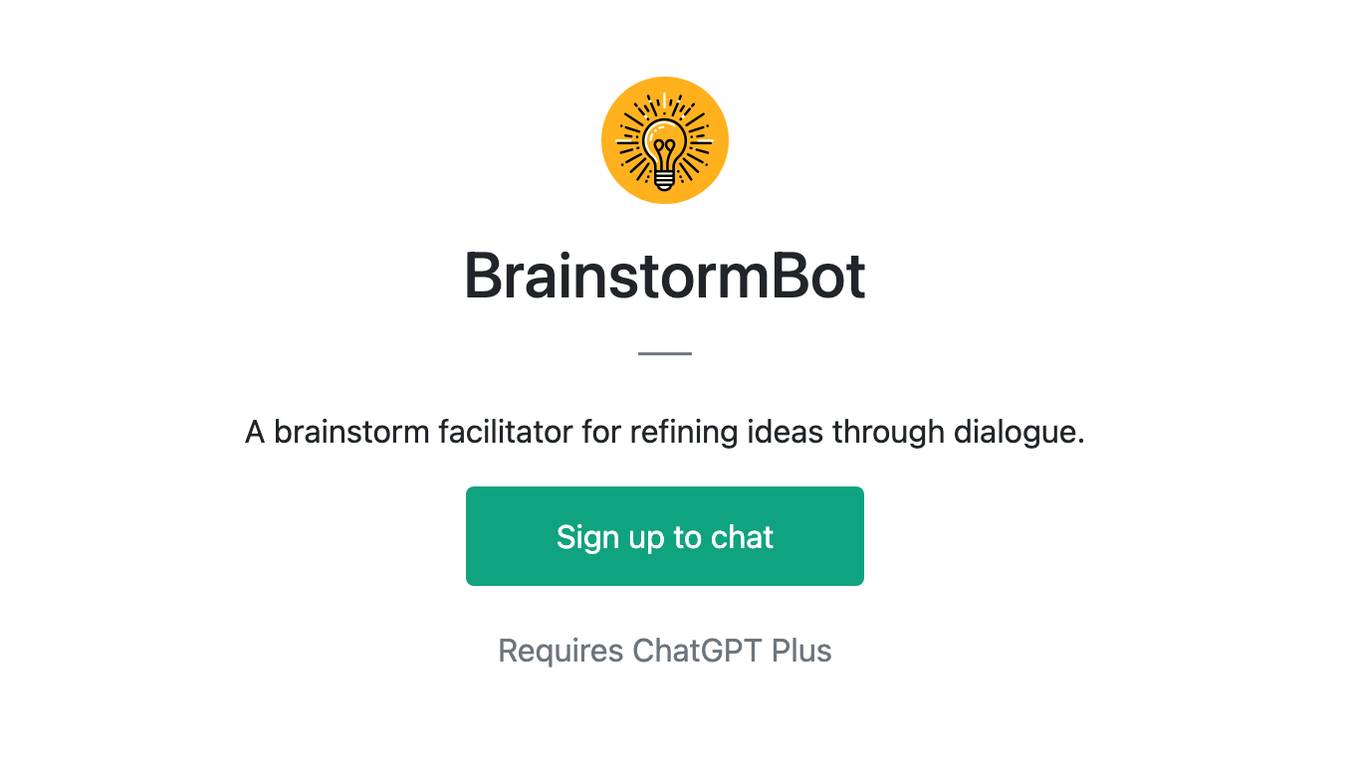Best AI tools for< Collaborate On Docs >
20 - AI tool Sites
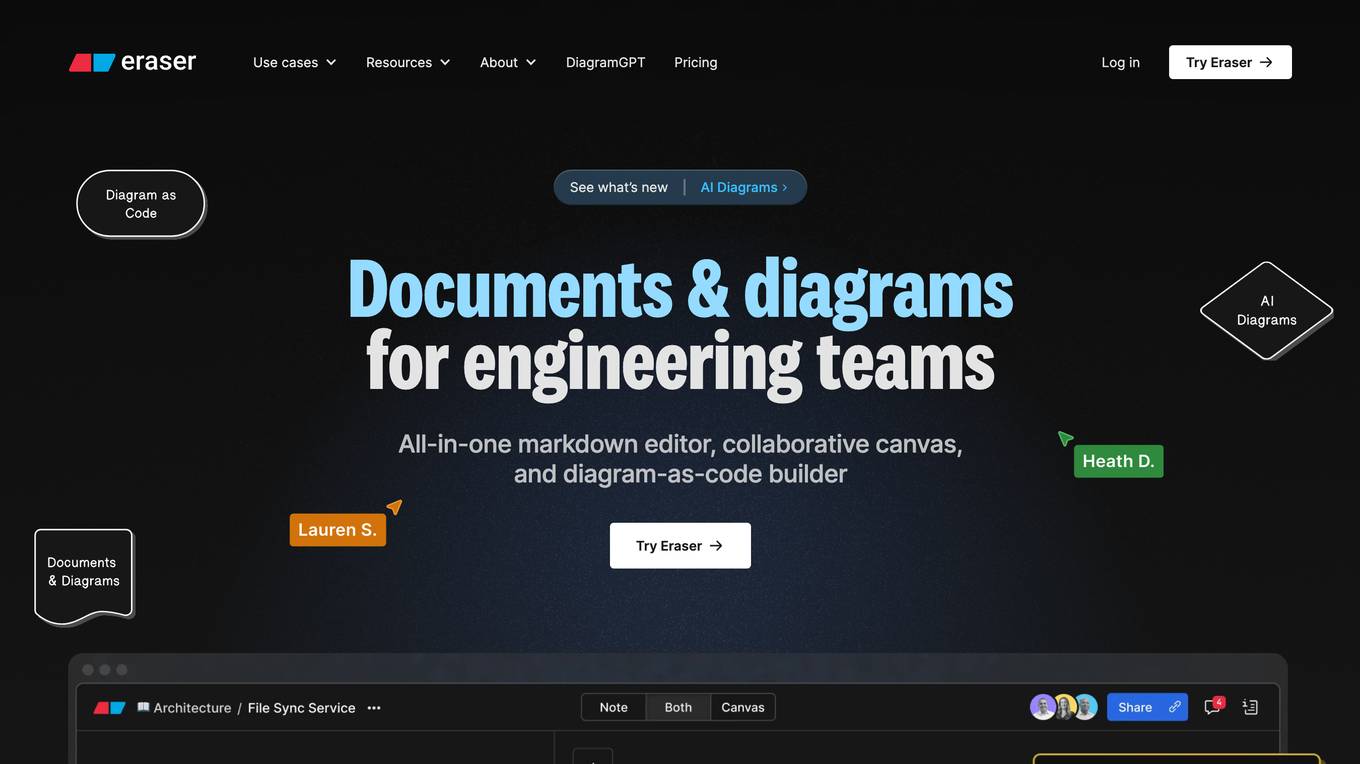
Eraser
Eraser is an AI co-pilot for technical design that offers a comprehensive set of tools for creating diagrams, documentation, collaboration, and more. It leverages AI technology to streamline the design process, allowing users to visualize data models, process flows, and infrastructure with ease. Eraser is trusted by leading architecture teams globally and is known for its beautiful design, usability, and efficiency. With features like diagram-as-code, version history, and seamless integrations, Eraser aims to enhance productivity and creativity in technical design workflows.

Whimsical
Whimsical is a collaborative workspace platform that unites teams, tasks, and tools in one place. It offers integrated project spaces for tasks, documents, and communication, infinite canvas for diagrams and wireframes, clutter-free documentation, and mindful team communication. Whimsical aims to help teams achieve high levels of focus, productivity, and calm while maintaining a high quality of life. It provides features such as boards for expressing ideas, docs for planning, projects for project management, and posts for team updates. Trusted by millions, Whimsical offers a distraction-free workspace to enhance productivity and collaboration.

Prezo
Prezo is an AI-powered platform that helps users create presentations, documents, and websites quickly and easily. With Prezo, users can access a library of pre-designed templates and use AI to generate content, images, and videos. Prezo also offers a range of collaboration tools, making it easy for teams to work together on projects.
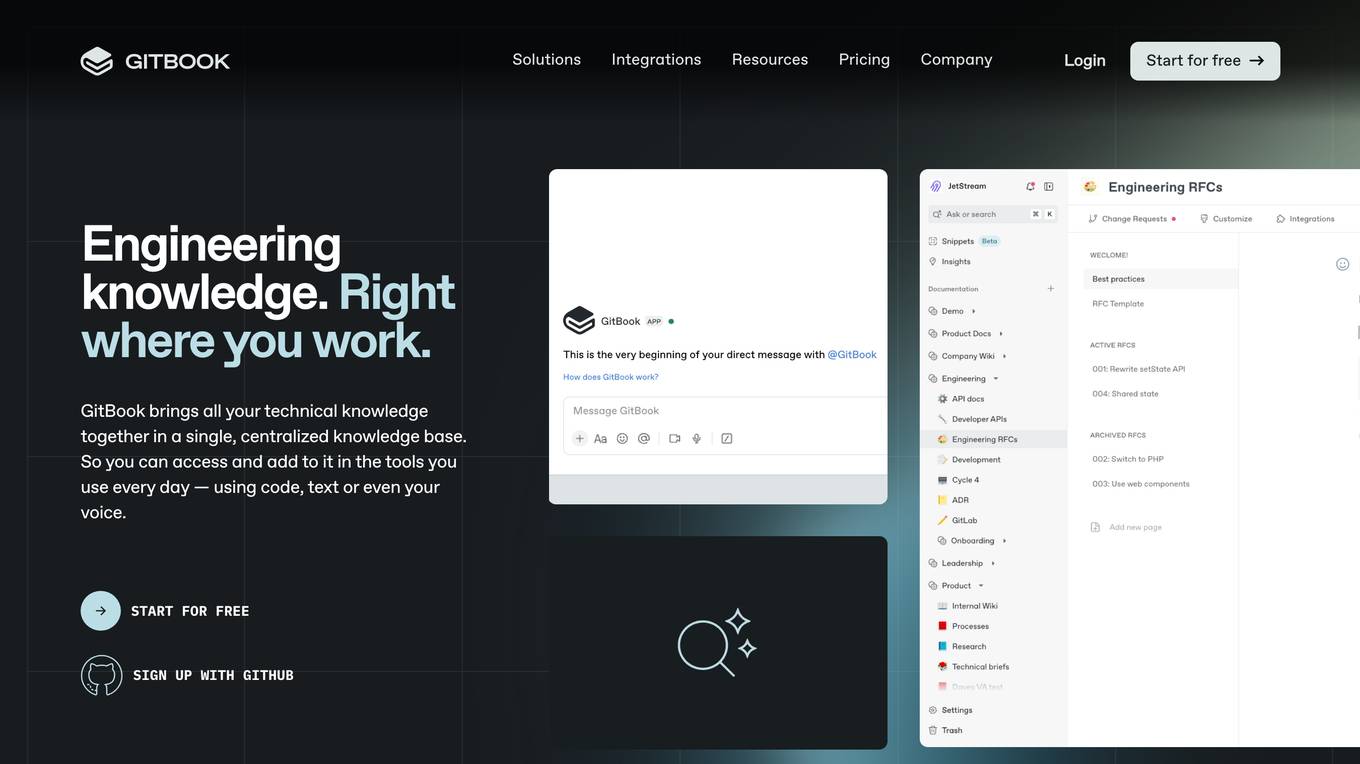
GitBook
GitBook is a knowledge management platform that helps engineering teams centralize, access, and add to their technical knowledge in the tools they use every day. With GitBook, teams can capture knowledge from conversations, code, and meetings, and turn it into useful, readable documentation. GitBook also offers a variety of features to help teams collaborate on documentation, including a branch-based workflow, real-time editing, and user permissions.
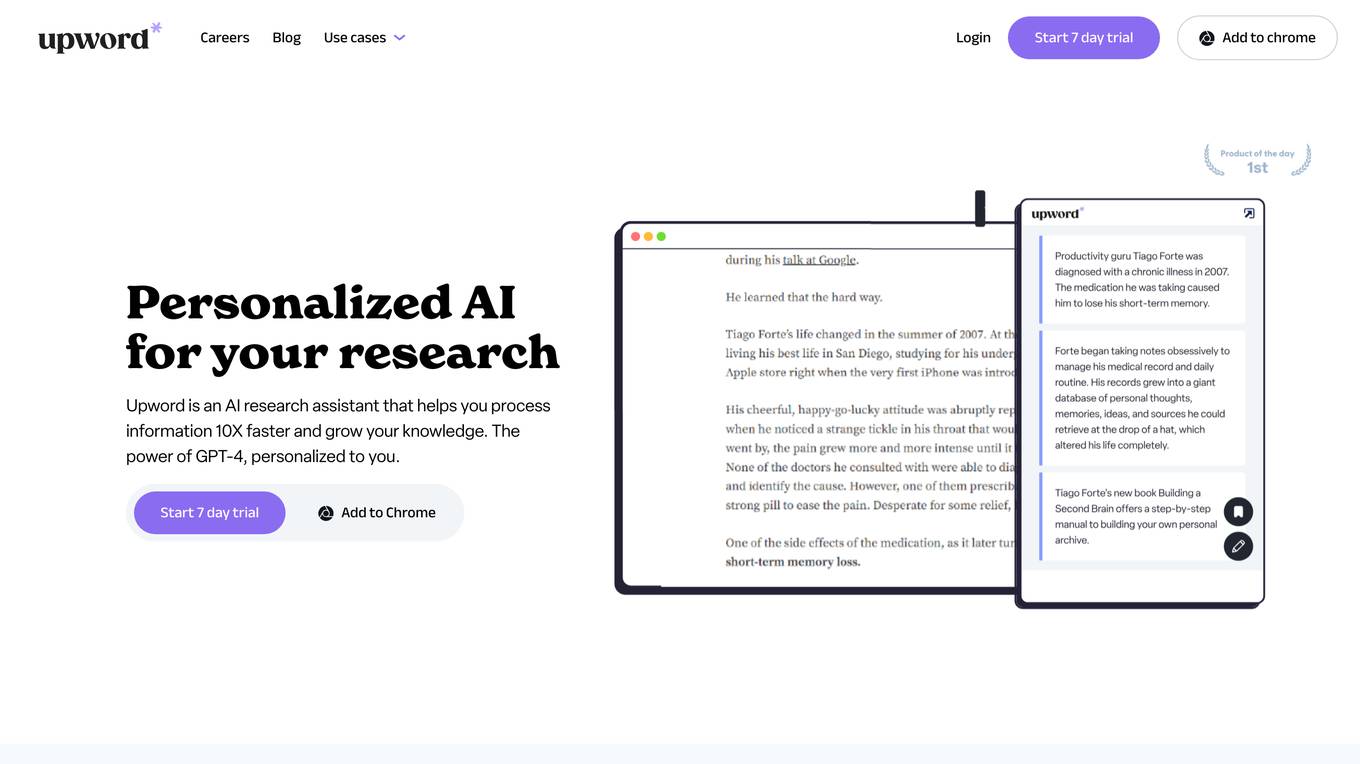
Upword
Upword is an AI-powered research assistant that allows users to control the AI research process, trust the results, and customize every step of the AI research process. Users can summarize various content types, create reports, manage research papers, and collaborate on research projects. Upword offers personalized AI chatbots, research templates, content curation, and a command center for managing research tasks efficiently.
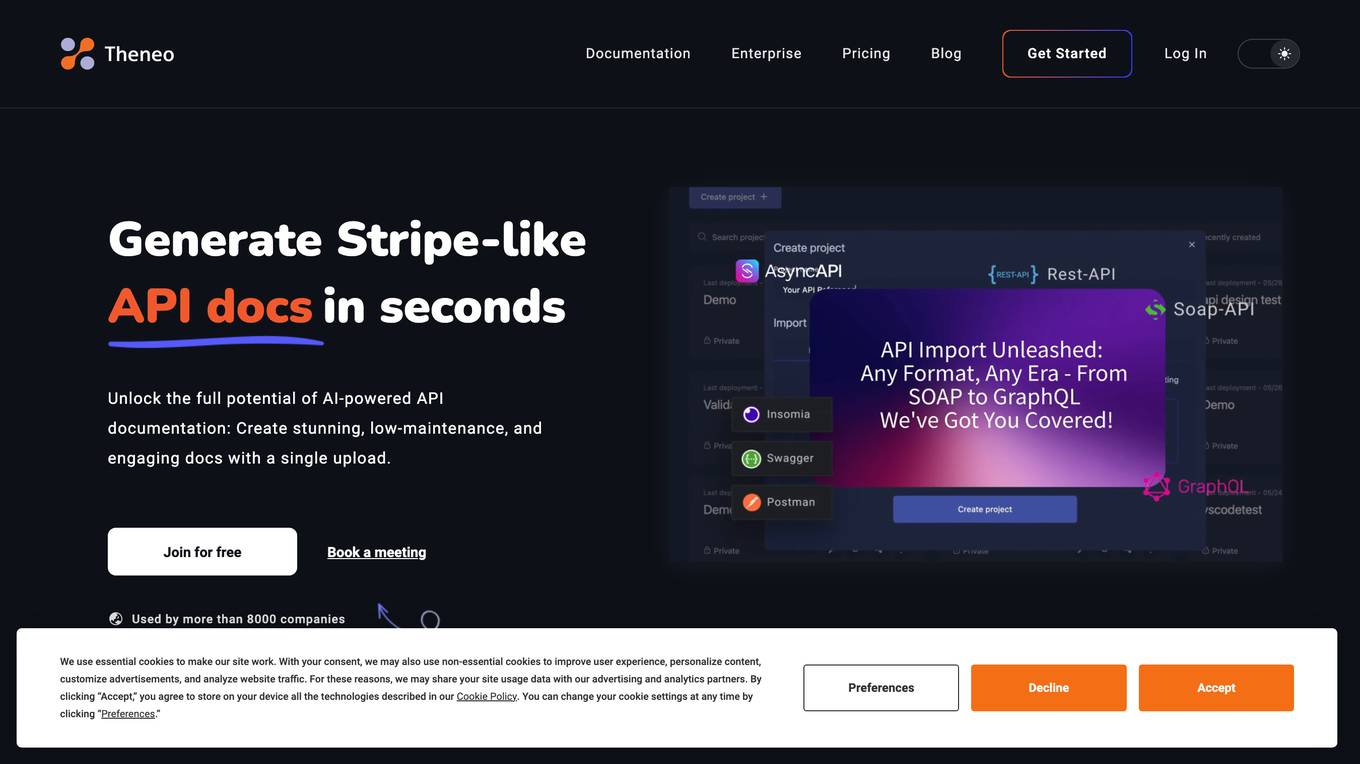
Theneo
Theneo is an AI-powered API documentation tool that helps developers create, maintain, and publish beautiful, interactive API documentation. With Theneo, you can automatically generate API descriptions and summaries, collaborate with your team in real-time, and customize your documentation to match your brand. Theneo also integrates with your favorite development tools and source code editors, so you can create and maintain your documentation right from your workflow.
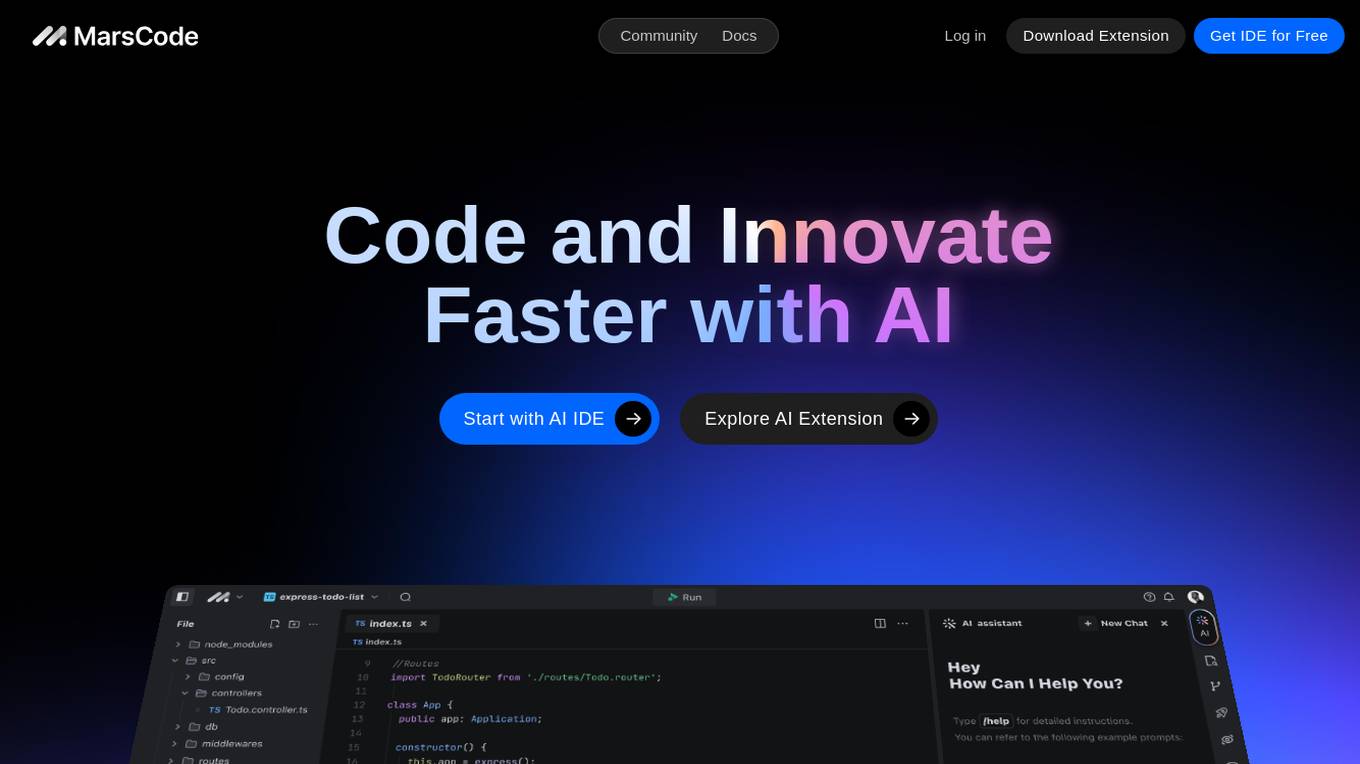
MarsCode
MarsCode is an AI-powered platform designed to help developers code and innovate faster. It provides a collaborative environment with AI community docs to enhance productivity and creativity. With features like real-time code suggestions, automated debugging, and intelligent code completion, MarsCode empowers developers to streamline their workflow and build high-quality software efficiently.

Google Drive
Google Drive is a cloud-based storage and file-sharing service that allows users to store, share, and collaborate on files from any device. It is part of the Google Workspace suite of productivity tools, which also includes Gmail, Docs, Sheets, and Slides. Drive is designed to be easy to use and secure, and it offers a variety of features that make it a valuable tool for businesses and individuals alike.
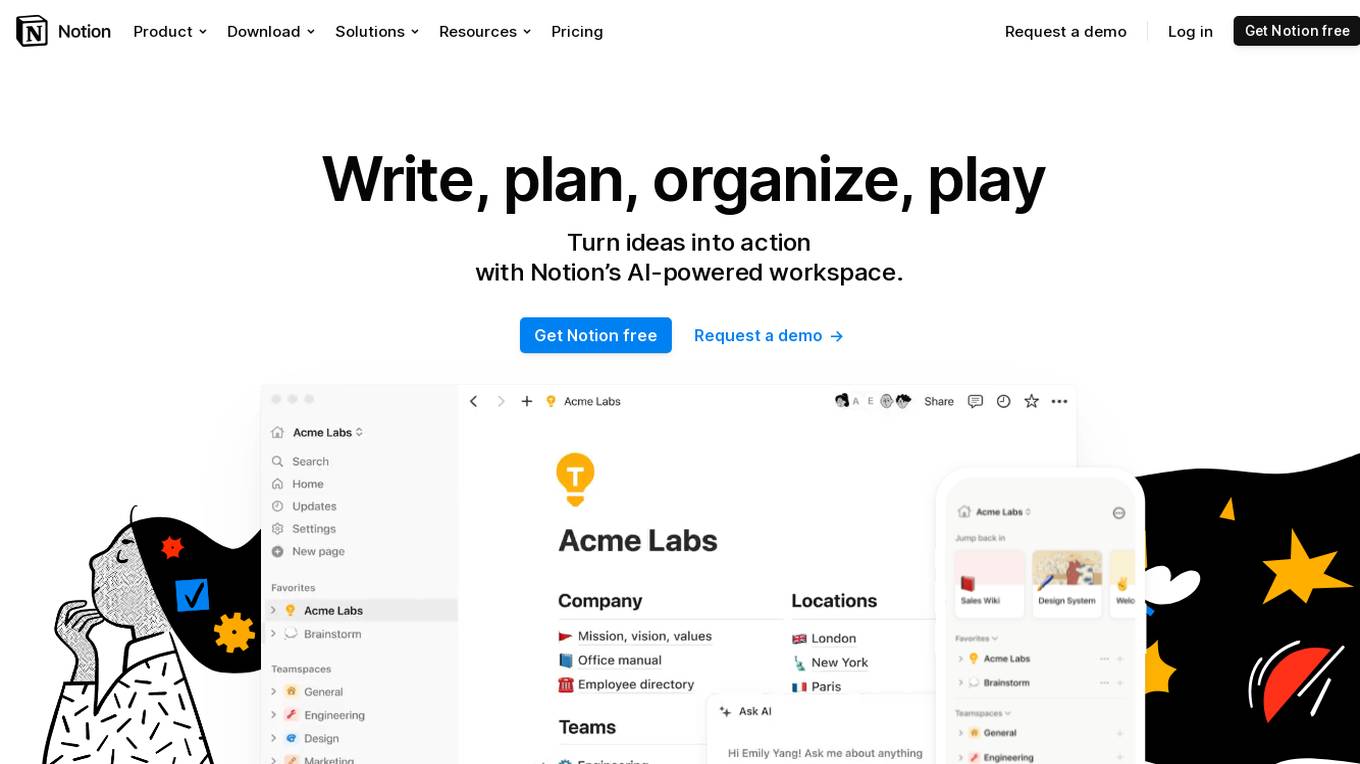
Notion
Notion is an AI-powered workspace that serves as a connected workspace for wiki, docs, and projects. It offers a simple and powerful platform to centralize knowledge, manage projects, and streamline workflows. Notion integrates AI assistance to help users organize and optimize their work processes efficiently. With features like template gallery, calendar integration, and customizable building blocks, Notion caters to teams of all sizes and functions, from startups to enterprises. The platform aims to enhance productivity and collaboration by providing a versatile and adaptive workspace for users to turn ideas into action.
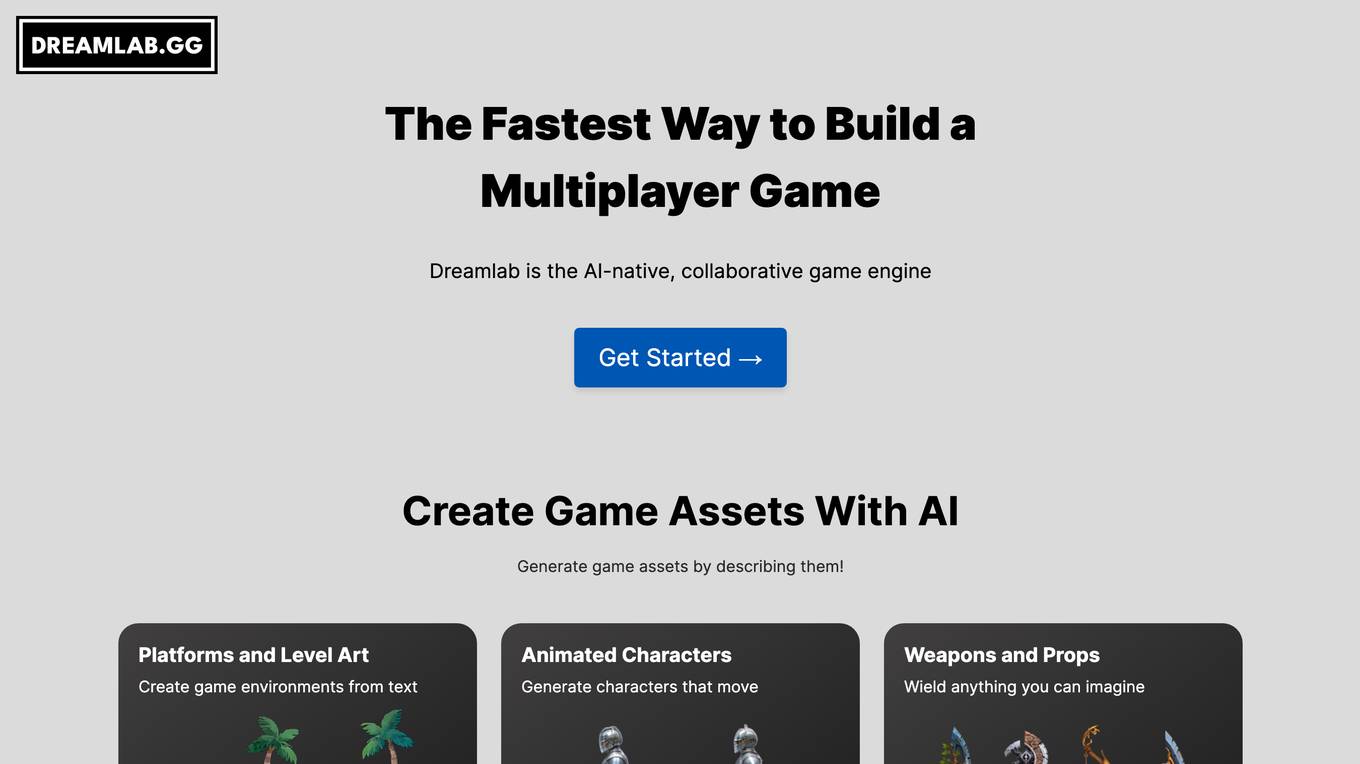
Dreamlab
Dreamlab is a collaborative game creation platform that allows users to build multiplayer games quickly and easily. With features like a game engine with Google Docs-style collaboration, an in-browser collaborative editor, effortless multiplayer integration, and AI assistance for coding, Dreamlab empowers users to bring their game ideas to life without the need for extensive technical knowledge. Users can start building games instantly, either from templates or from scratch, directly in their browser without any downloads required. Additionally, Dreamlab offers one-click deployment for multiplayer games, along with free server hosting and a dreamlab.gg domain name. The platform is designed to streamline the game development process and make it accessible to everyone, regardless of their coding experience.
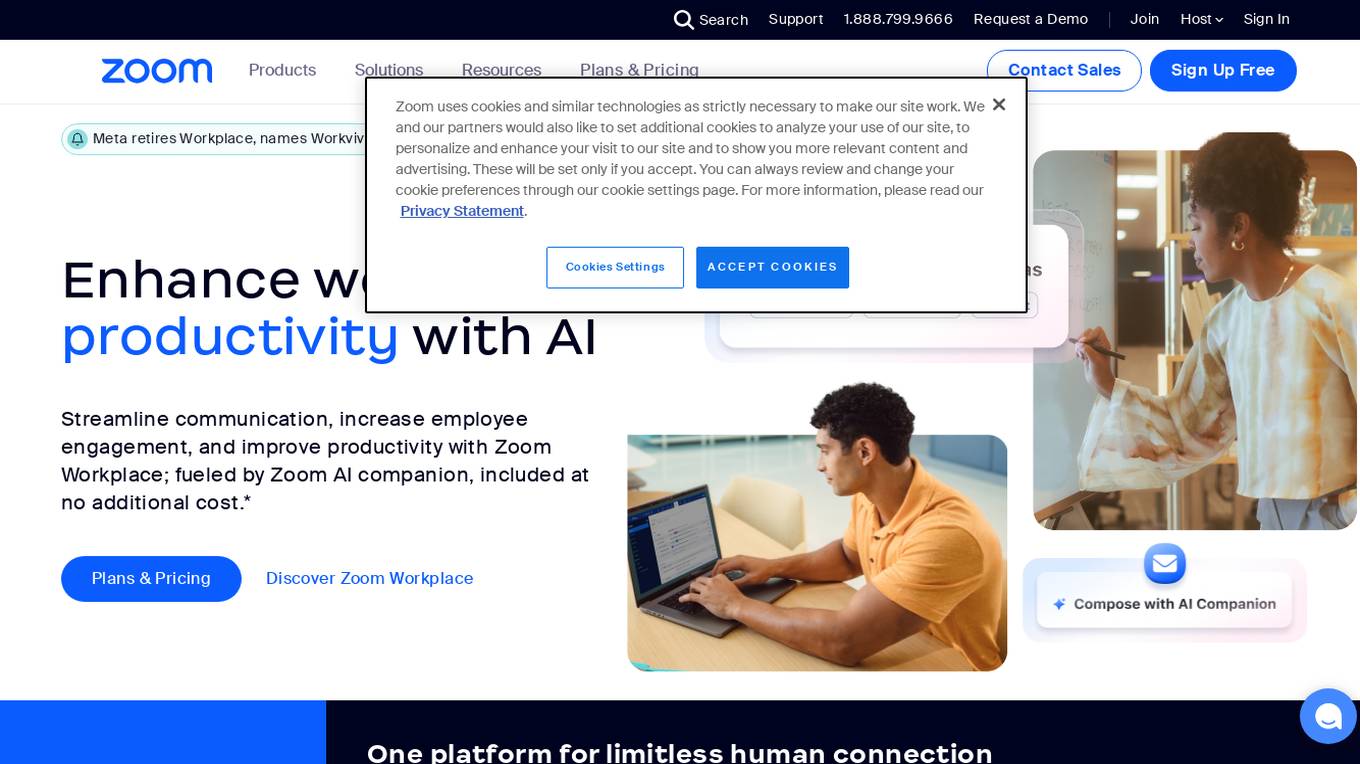
Zoom
Zoom is an AI-powered platform that offers a wide range of communication and productivity tools to enhance team effectiveness and skills. It provides features such as team chat, phone, mail, calendar scheduler, productivity docs, whiteboard, clips, notes, app marketplace, digital signage, visitor management, and more. Zoom aims to streamline communication, increase employee engagement, and improve productivity across various industries and audiences. The platform also offers developer tools, solutions for partners, and resources like webinars, events, and customer stories.

Midjourney
Midjourney is an independent research lab that aims to explore new mediums of thought and expand the imaginative powers of the human species. The website serves as a platform where users can collaborate to create new worlds, fantastic characters, and unique imagery from short text descriptions. Midjourney focuses on design, human infrastructure, and AI, with a small self-funded team dedicated to pushing the boundaries of creativity and innovation.
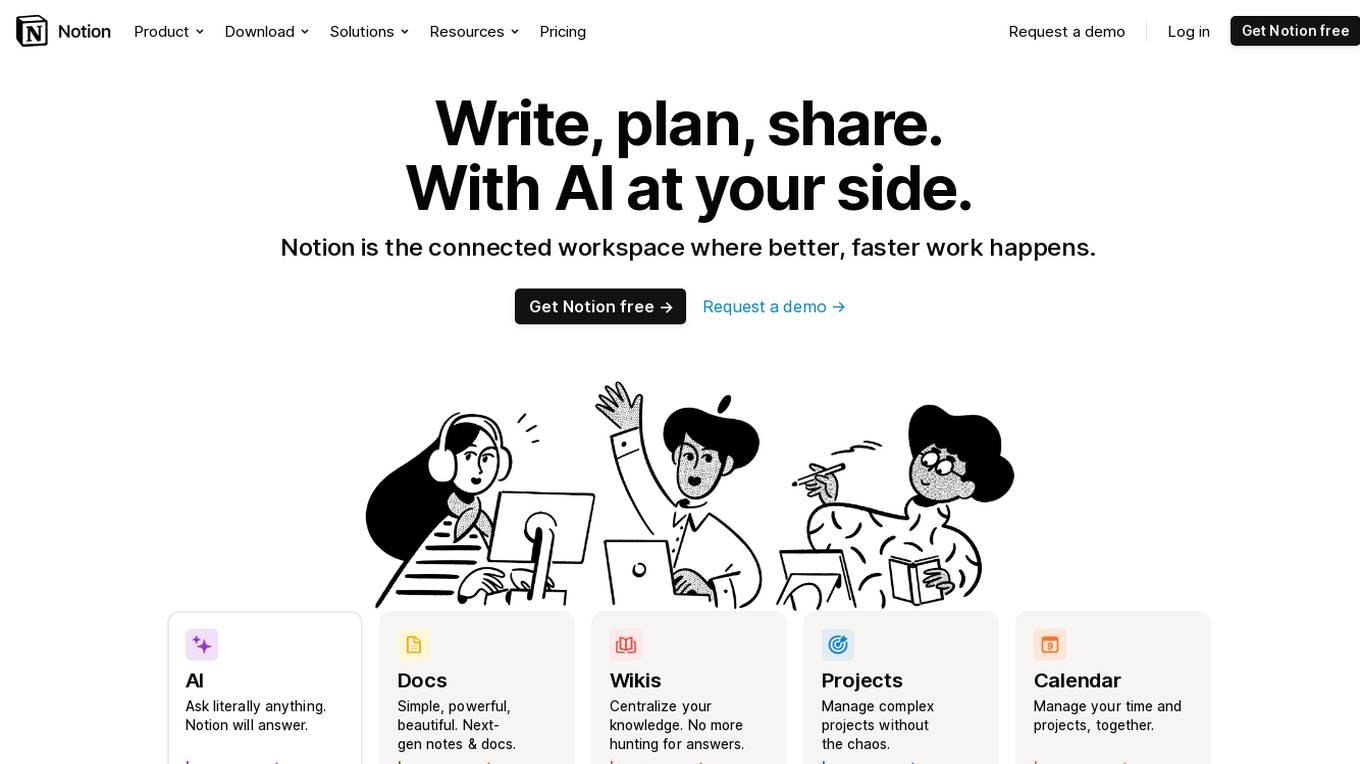
Notion
Notion is a connected workspace that combines wikis, docs, projects, and calendars into a single platform. It is designed to be simple and powerful, with a focus on collaboration and organization. Notion's AI assistant can help you with a variety of tasks, such as answering questions, generating text, and translating languages. With its powerful building blocks, you can customize Notion to fit your specific needs and workflows. Notion is used by millions of people around the world, from individuals and small businesses to large enterprises.
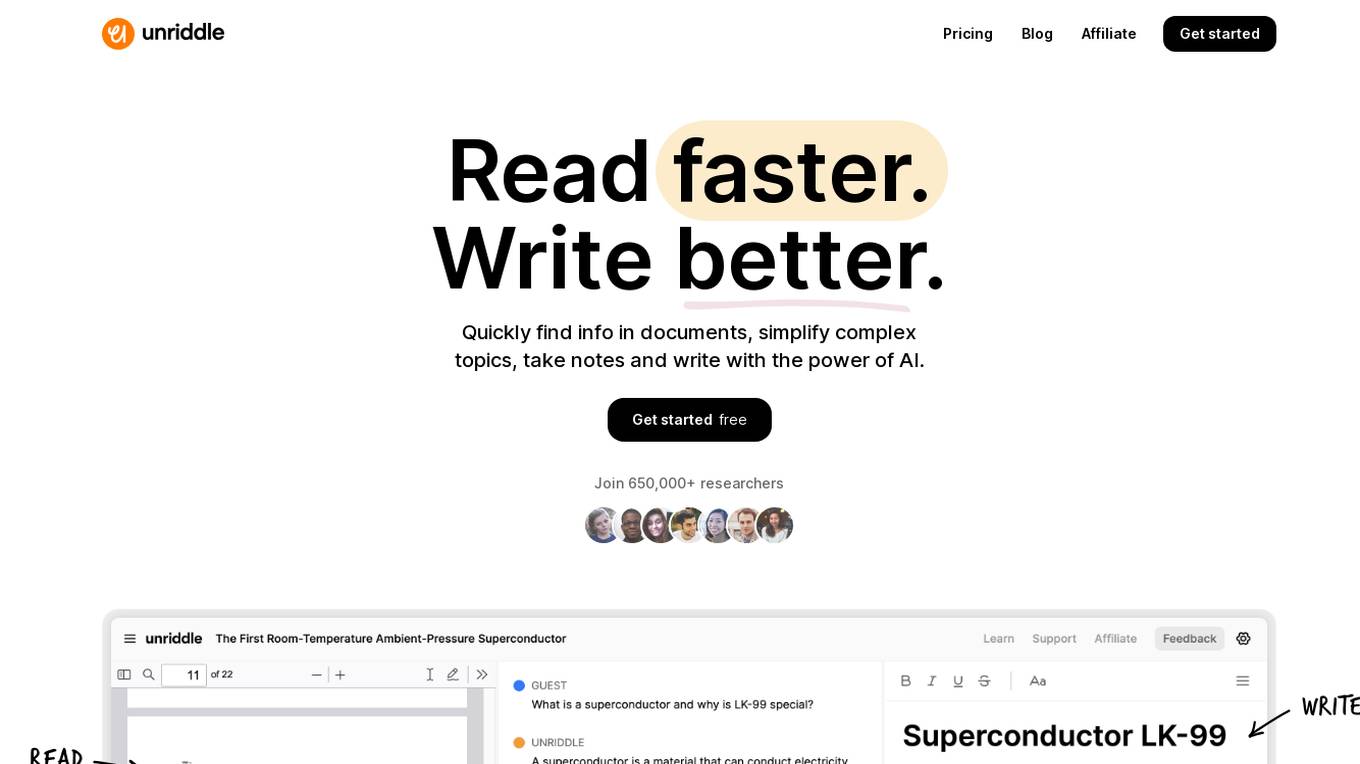
Unriddle
Unriddle is an AI-powered research and writing tool that helps users quickly find, summarize, and understand information from documents. It uses natural language processing and machine learning to generate AI assistants that can be placed on top of any document, providing users with real-time insights and summaries. Unriddle also offers a variety of features to help users write better, including AI-powered autocomplete and grammar checking. With Unriddle, users can save time on research and writing, and produce higher-quality work.
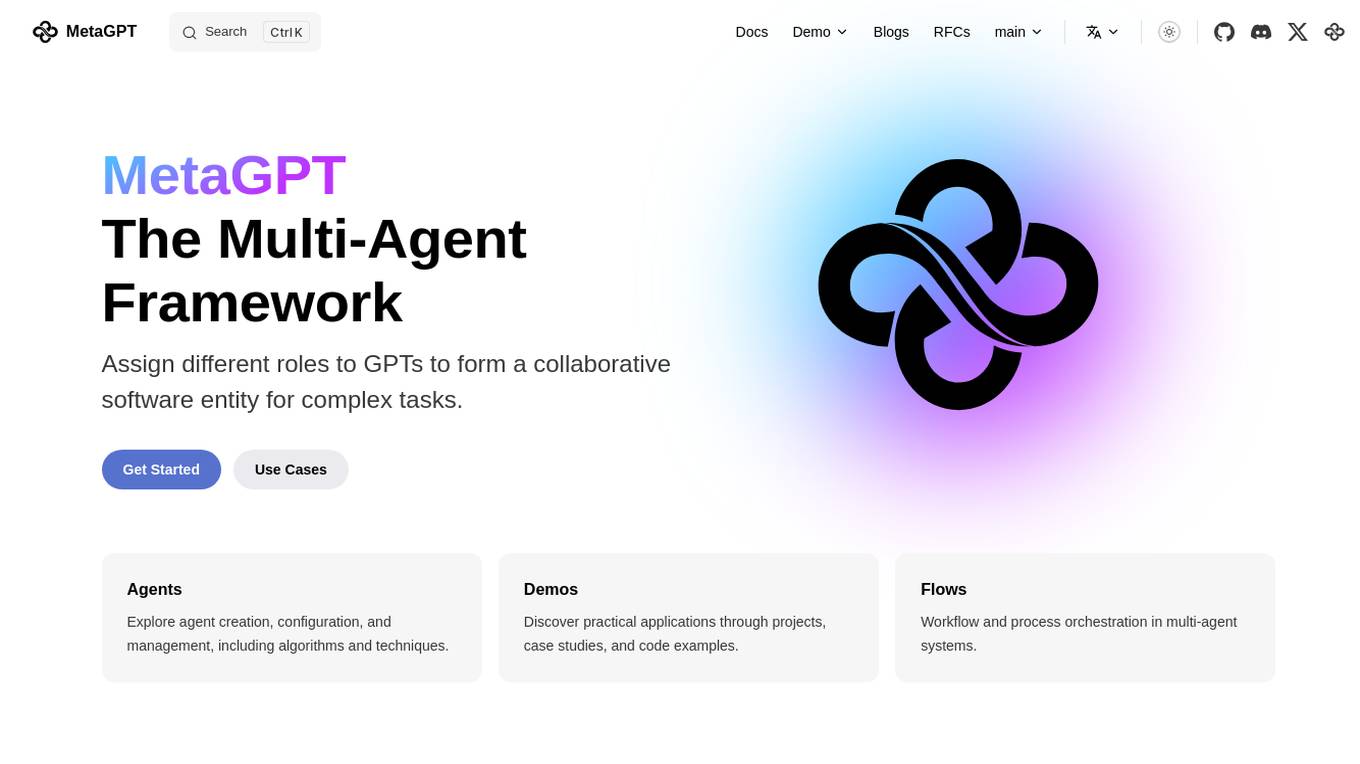
MetaGPT
MetaGPT is a multi-agent framework that assigns different roles to GPTs to create a collaborative software entity for handling complex tasks. It allows users to explore agent creation, configuration, and management, along with practical applications through demos and case studies. The tool facilitates workflow and process orchestration in multi-agent systems, providing a versatile platform for various projects. MetaGPT is released under the MIT License and is developed by Alexander Wu.
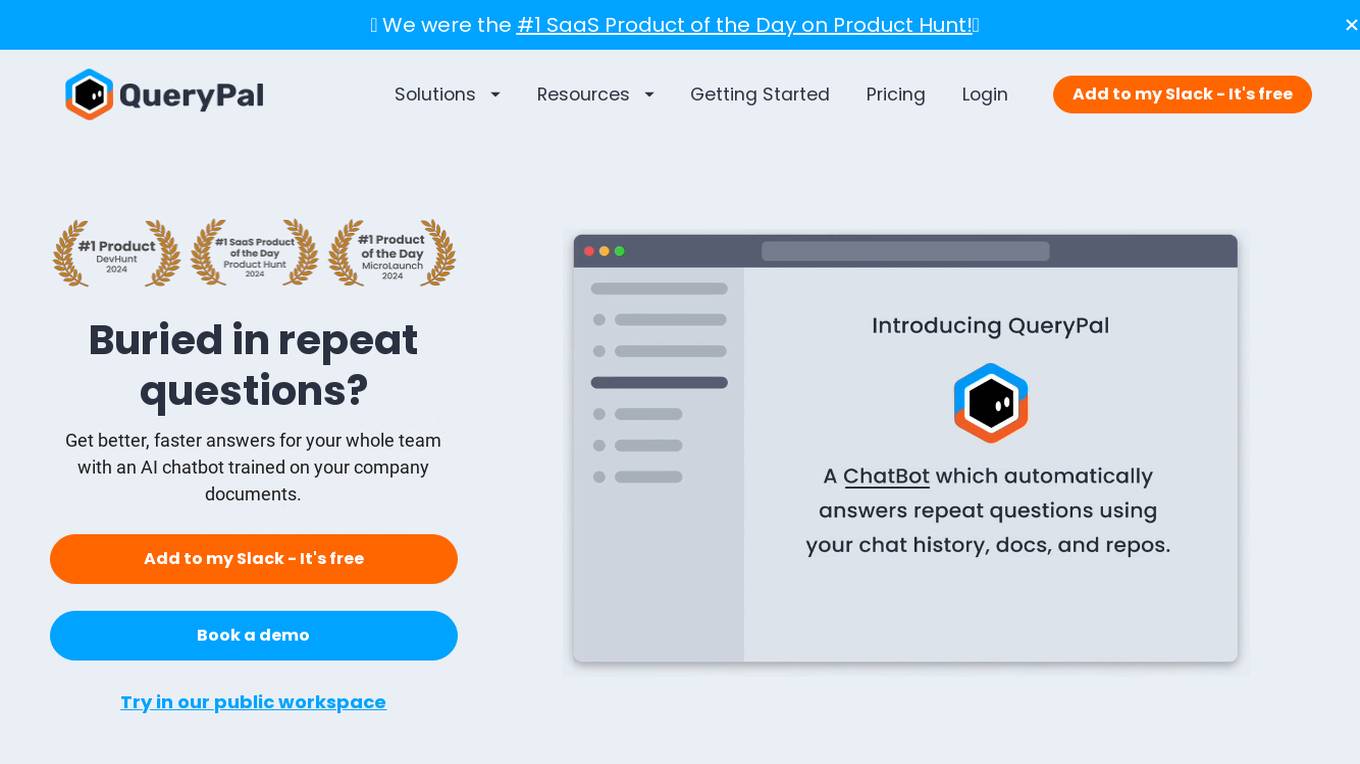
QueryPal
QueryPal is an AI chatbot application designed to provide better and faster answers for teams by leveraging AI technology trained on company documents. It helps in resolving repetitive questions instantly, ensuring accurate and contextualized results. The application allows users to create personalized AI chatbots for each team in minutes, with customization options for document access, chatbot admins, and tone. QueryPal offers unlimited connections to various platforms like Slack, Microsoft Teams, Google Drive, and more, making it a versatile tool for team communication and knowledge management.

Surfsite
Surfsite is an AI application designed for SaaS professionals to streamline workflows, make data-driven decisions, and enhance productivity. It offers AI assistants that connect to essential tools, provide real-time insights, and assist in various tasks such as market research, project management, and analytics. Surfsite aims to centralize data, improve decision-making, and optimize processes for product managers, growth marketers, and founders. The application leverages advanced LLMs and integrates seamlessly with popular tools like Google Docs, Jira, and Trello to offer a comprehensive AI-powered solution.
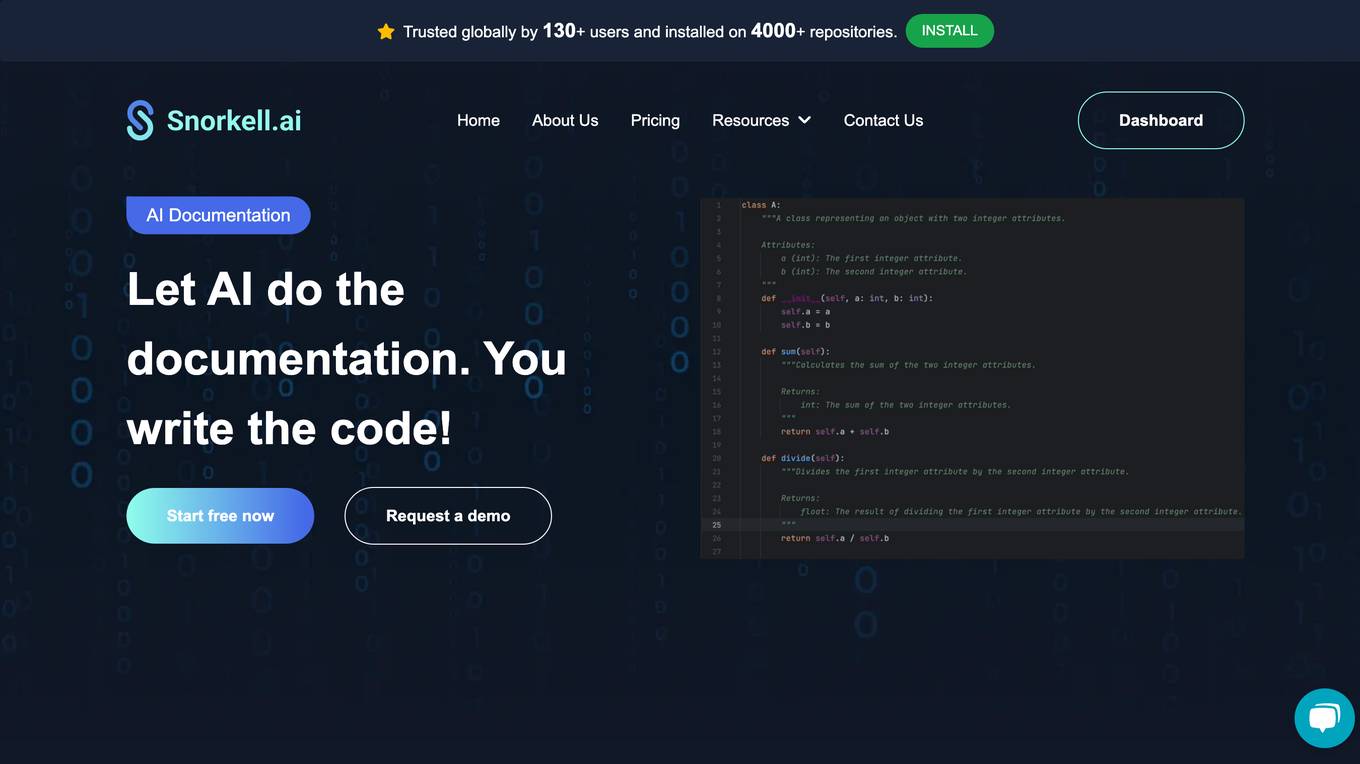
Snorkell.ai
Snorkell.ai is an automated documentation generation tool that uses AI to create and update docstrings for GitHub projects. It supports multiple programming languages, including Python, JavaScript, TypeScript, Java, and Kotlin. Snorkell.ai integrates with GitHub and automatically generates docstrings whenever a pull request is merged, ensuring that documentation is always up-to-date with the codebase. It helps developers save time and effort by automating the documentation process, leading to improved code quality and reduced onboarding time.
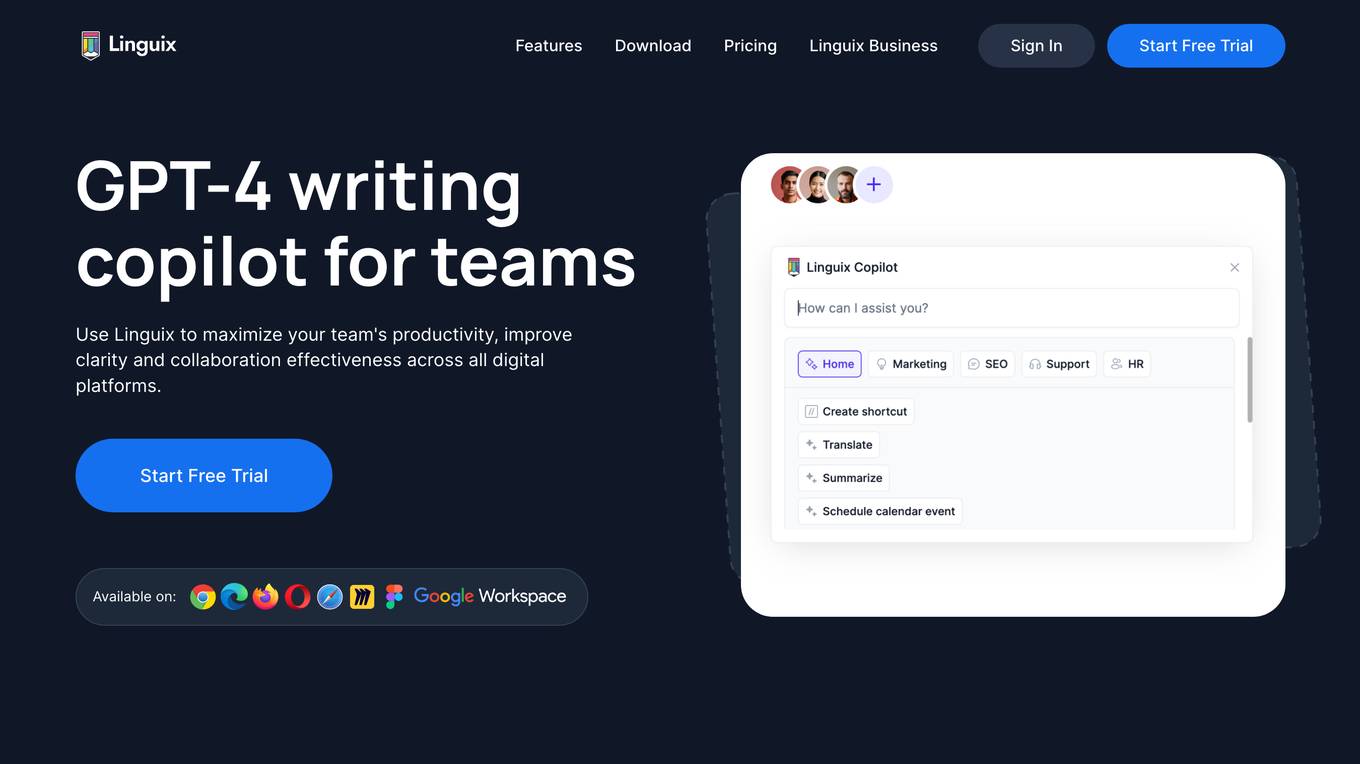
Linguix
Linguix is a GPT-4 writing and productivity copilot for teams. It uses artificial intelligence to improve grammar, spelling, and style, and to help users write more clearly and effectively. Linguix is available as a browser extension and a web editor, and it can be used with a variety of online platforms, including Gmail, Google Docs, and OpenAI. Linguix is trusted by over 310,000 users, including Google Chrome Store Featured App, Edge Store Featured App, Product Hunt Top #1 writing assistant, G2 reviews website Top proofreading tool, and Linguix for Figma Featured App.
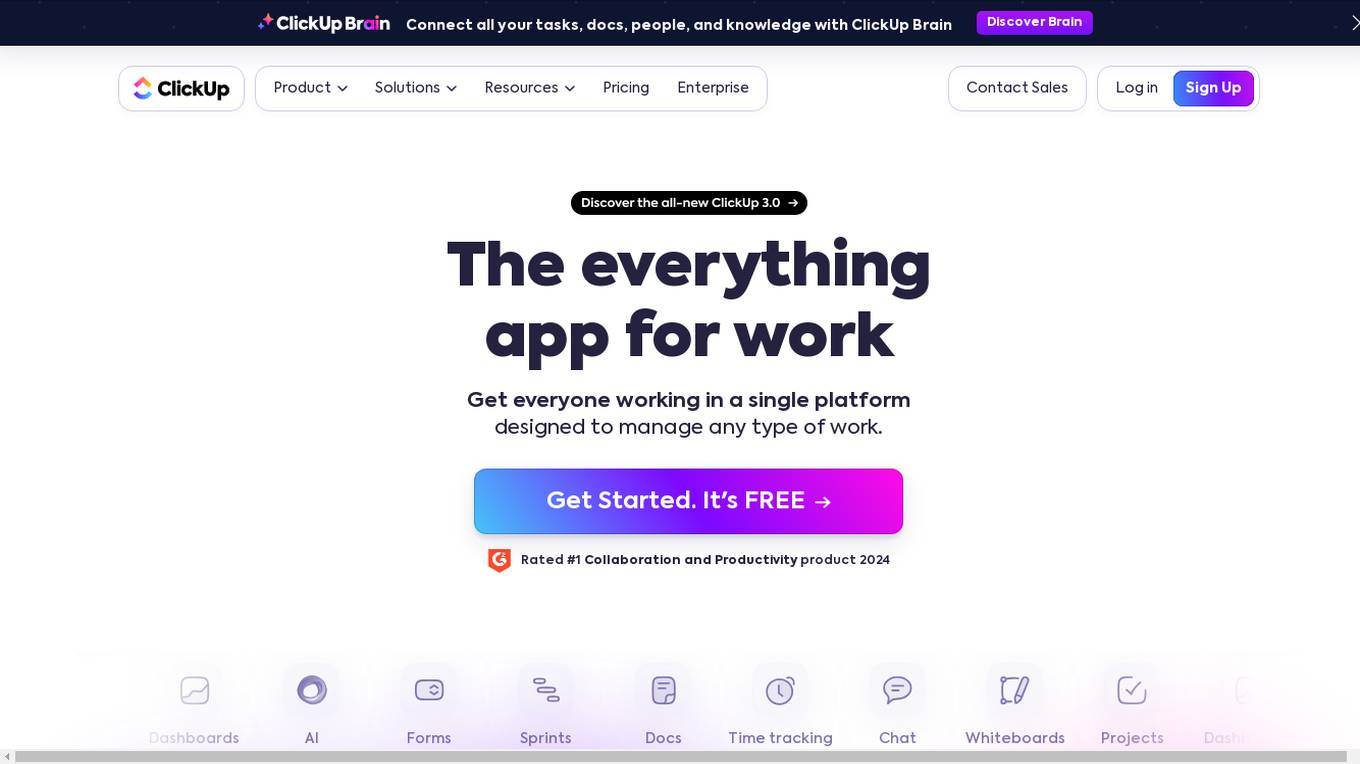
ClickUp
ClickUp is a cloud-based collaboration and productivity platform that combines tasks, docs, spreadsheets, and more into a single, unified workspace. It offers a wide range of features to help teams manage projects, track progress, and communicate effectively. ClickUp is designed to be flexible and customizable, so it can be used by teams of all sizes and industries. It is also highly scalable, so it can grow with your team as your needs change.
20 - Open Source AI Tools
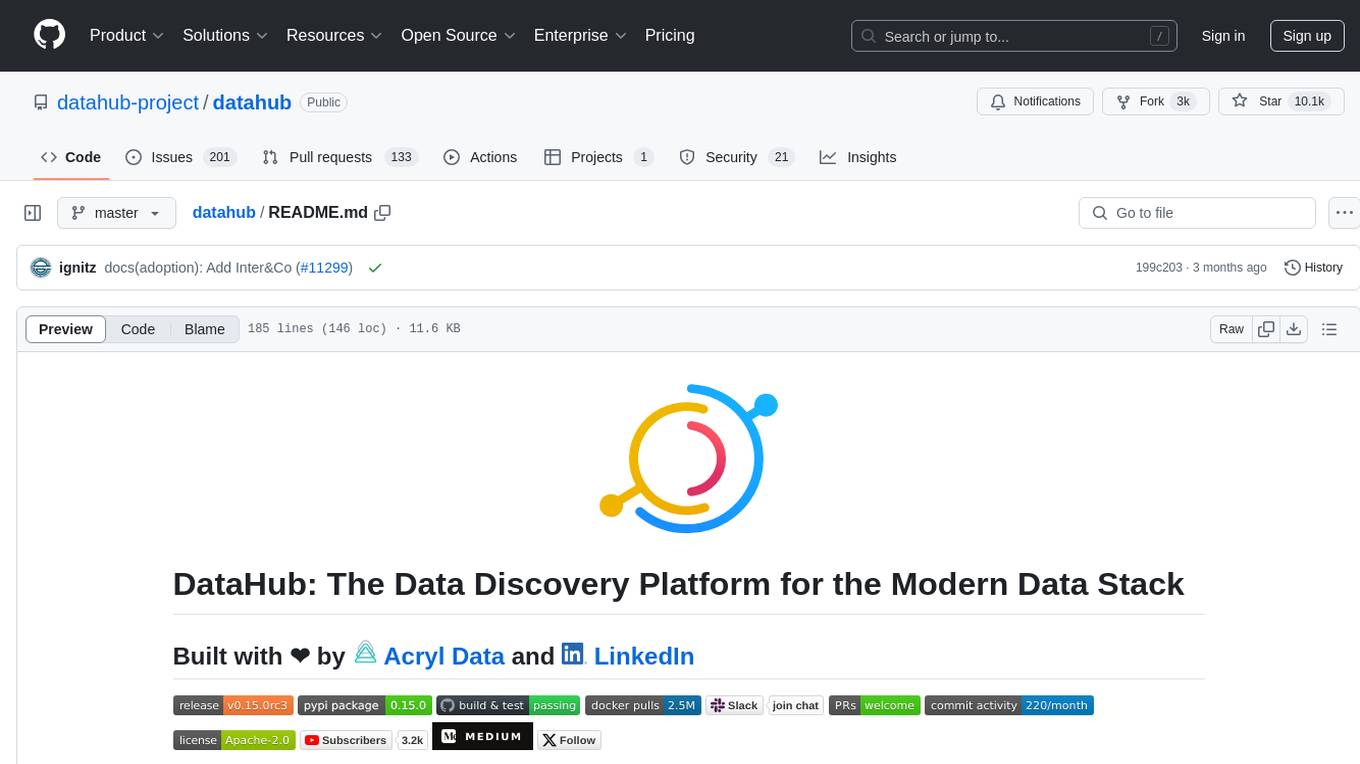
datahub
DataHub is an open-source data catalog designed for the modern data stack. It provides a platform for managing metadata, enabling users to discover, understand, and collaborate on data assets within their organization. DataHub offers features such as data lineage tracking, data quality monitoring, and integration with various data sources. It is built with contributions from Acryl Data and LinkedIn, aiming to streamline data management processes and enhance data discoverability across different teams and departments.
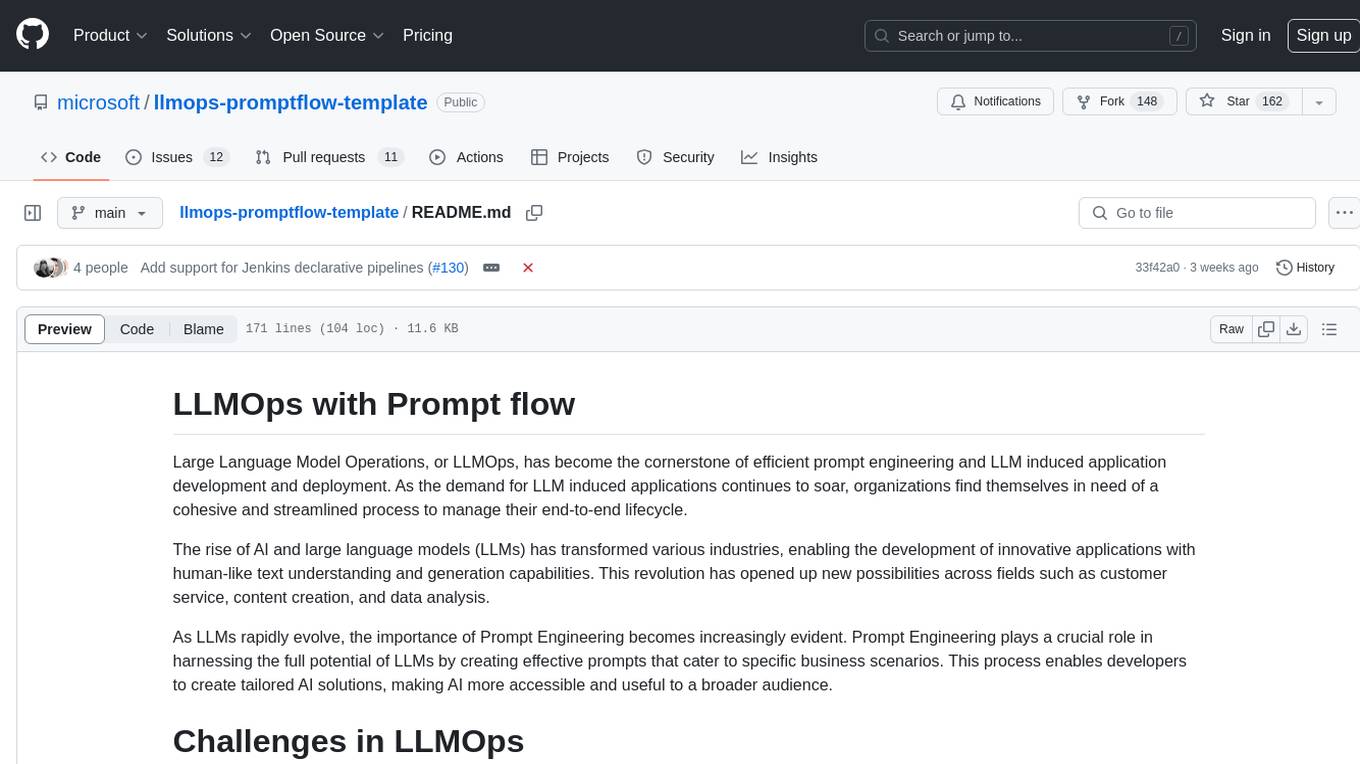
llmops-promptflow-template
LLMOps with Prompt flow is a template and guidance for building LLM-infused apps using Prompt flow. It provides centralized code hosting, lifecycle management, variant and hyperparameter experimentation, A/B deployment, many-to-many dataset/flow relationships, multiple deployment targets, comprehensive reporting, BYOF capabilities, configuration-based development, local prompt experimentation and evaluation, endpoint testing, and optional Human-in-loop validation. The tool is customizable to suit various application needs.
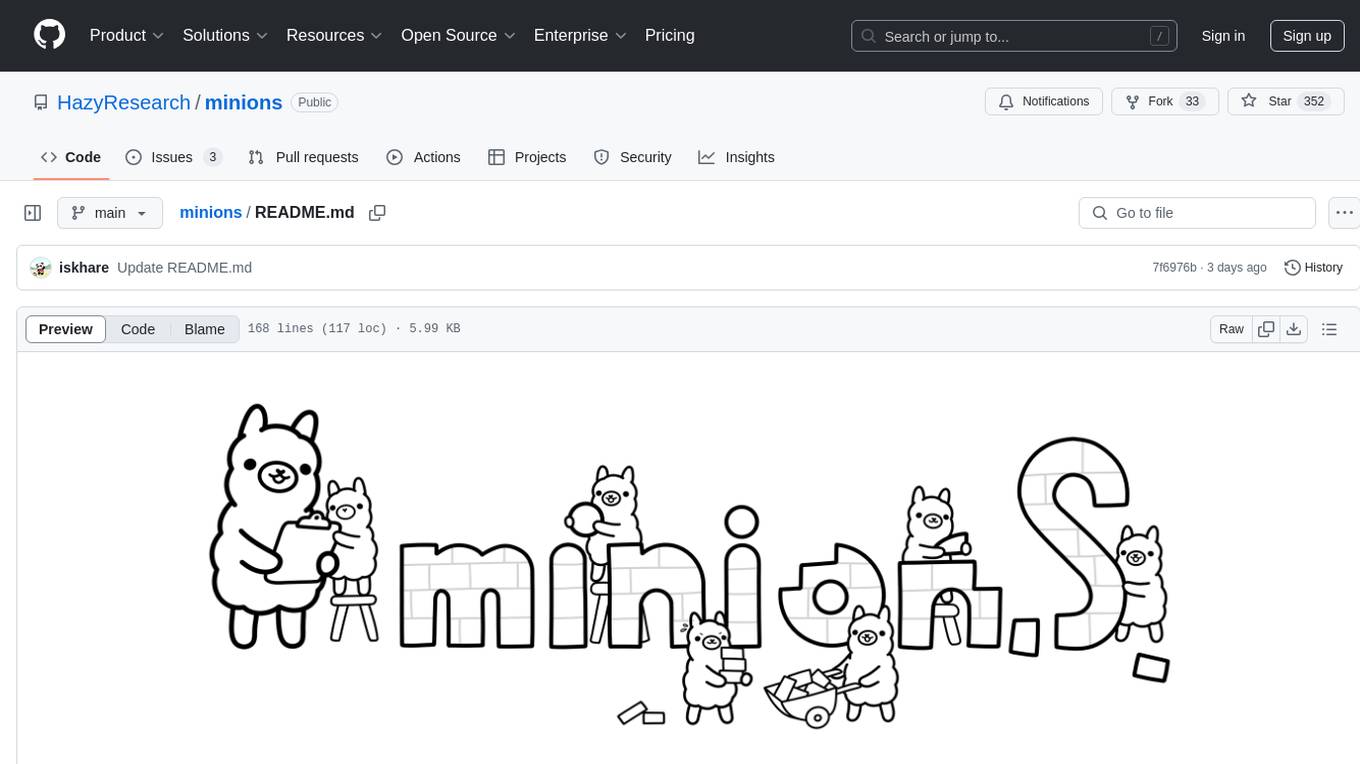
minions
Minions is a communication protocol that enables small on-device models to collaborate with frontier models in the cloud. By only reading long contexts locally, it reduces cloud costs with minimal or no quality degradation. The repository provides a demonstration of the protocol.
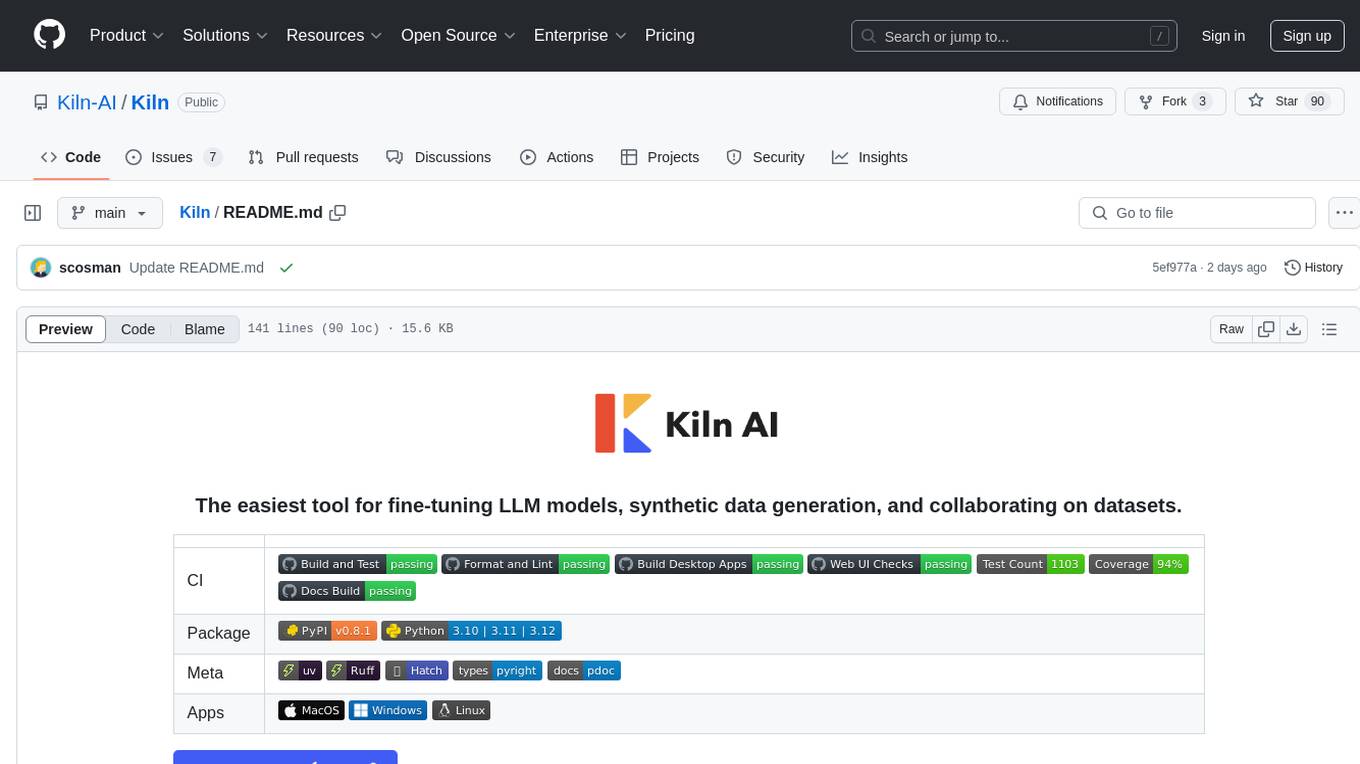
Kiln
Kiln is an intuitive tool for fine-tuning LLM models, generating synthetic data, and collaborating on datasets. It offers desktop apps for Windows, MacOS, and Linux, zero-code fine-tuning for various models, interactive data generation, and Git-based version control. Users can easily collaborate with QA, PM, and subject matter experts, generate auto-prompts, and work with a wide range of models and providers. The tool is open-source, privacy-first, and supports structured data tasks in JSON format. Kiln is free to use and helps build high-quality AI products with datasets, facilitates collaboration between technical and non-technical teams, allows comparison of models and techniques without code, ensures structured data integrity, and prioritizes user privacy.
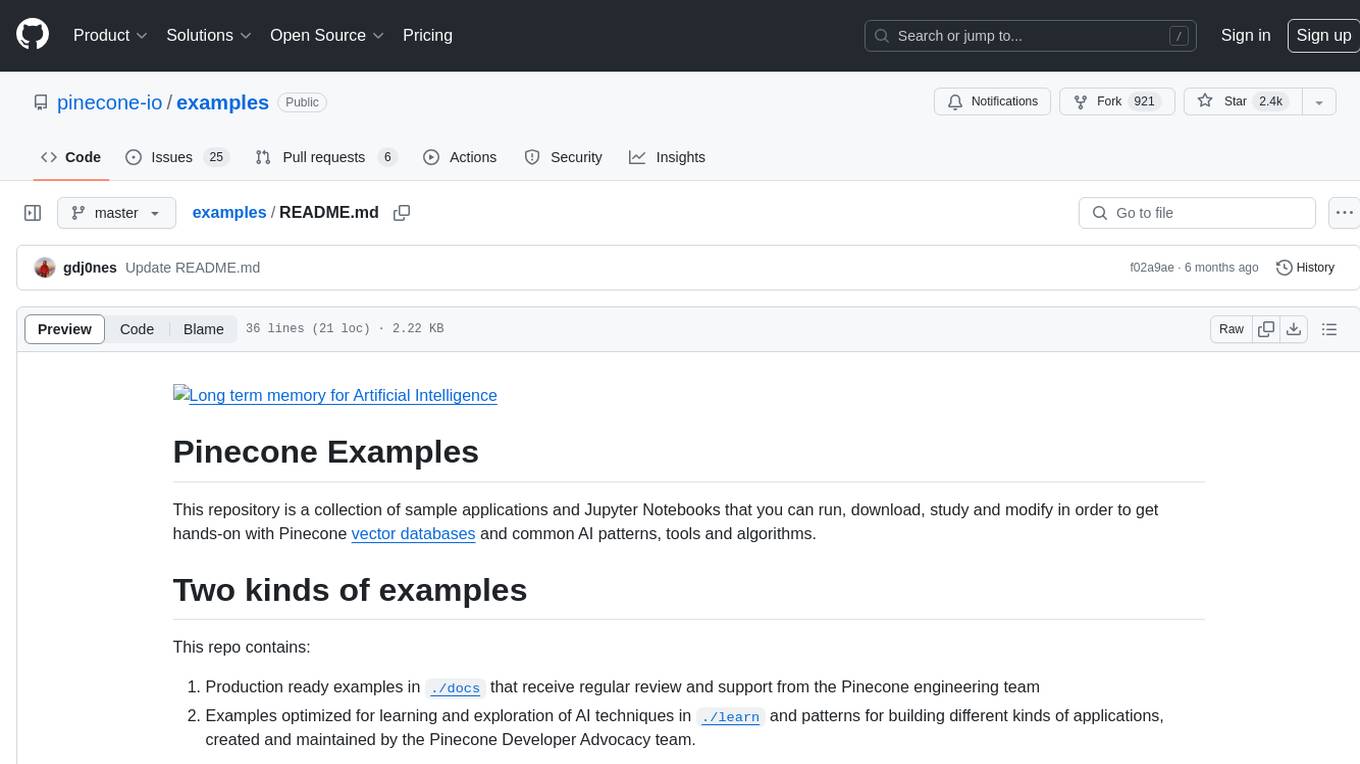
examples
This repository contains a collection of sample applications and Jupyter Notebooks for hands-on experience with Pinecone vector databases and common AI patterns, tools, and algorithms. It includes production-ready examples for review and support, as well as learning-optimized examples for exploring AI techniques and building applications. Users can contribute, provide feedback, and collaborate to improve the resource.
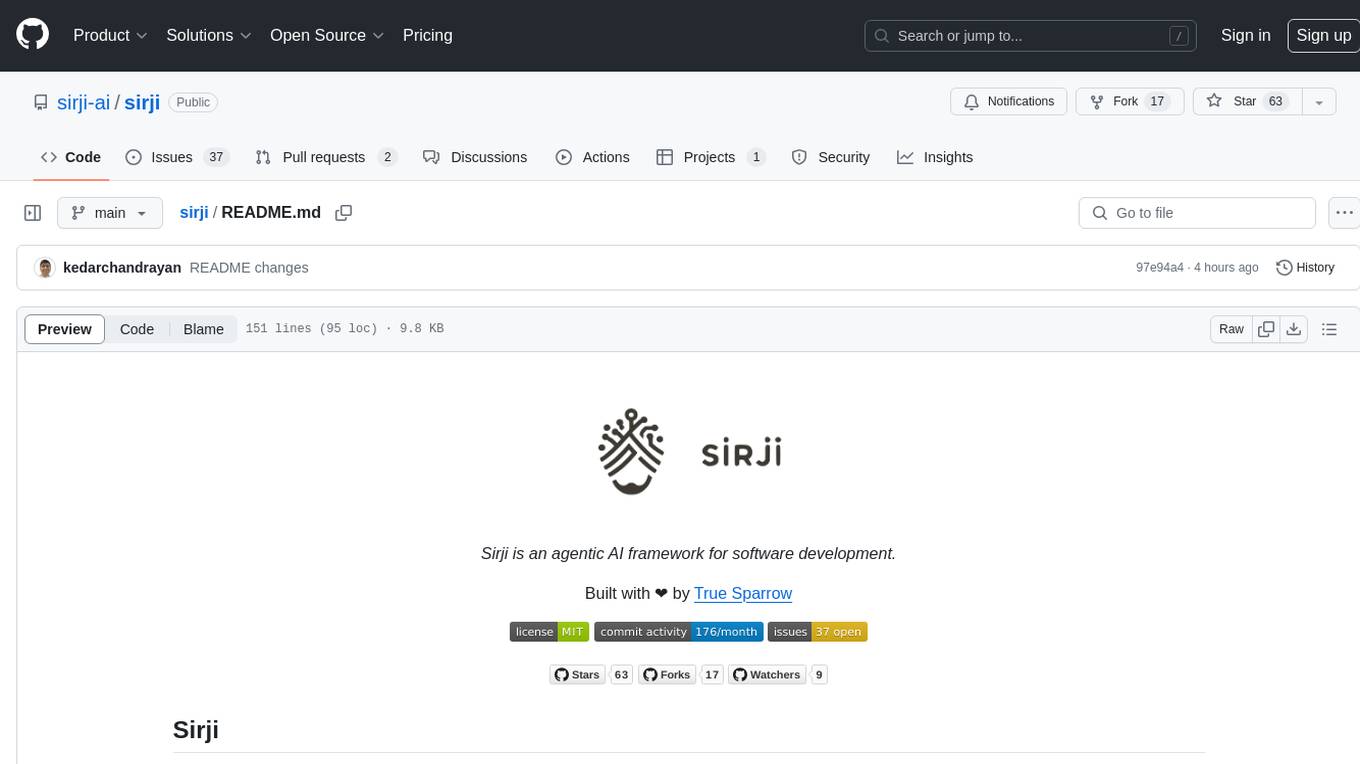
sirji
Sirji is an agentic AI framework for software development where various AI agents collaborate via a messaging protocol to solve software problems. It uses standard or user-generated recipes to list tasks and tips for problem-solving. Agents in Sirji are modular AI components that perform specific tasks based on custom pseudo code. The framework is currently implemented as a Visual Studio Code extension, providing an interactive chat interface for problem submission and feedback. Sirji sets up local or remote development environments by installing dependencies and executing generated code.
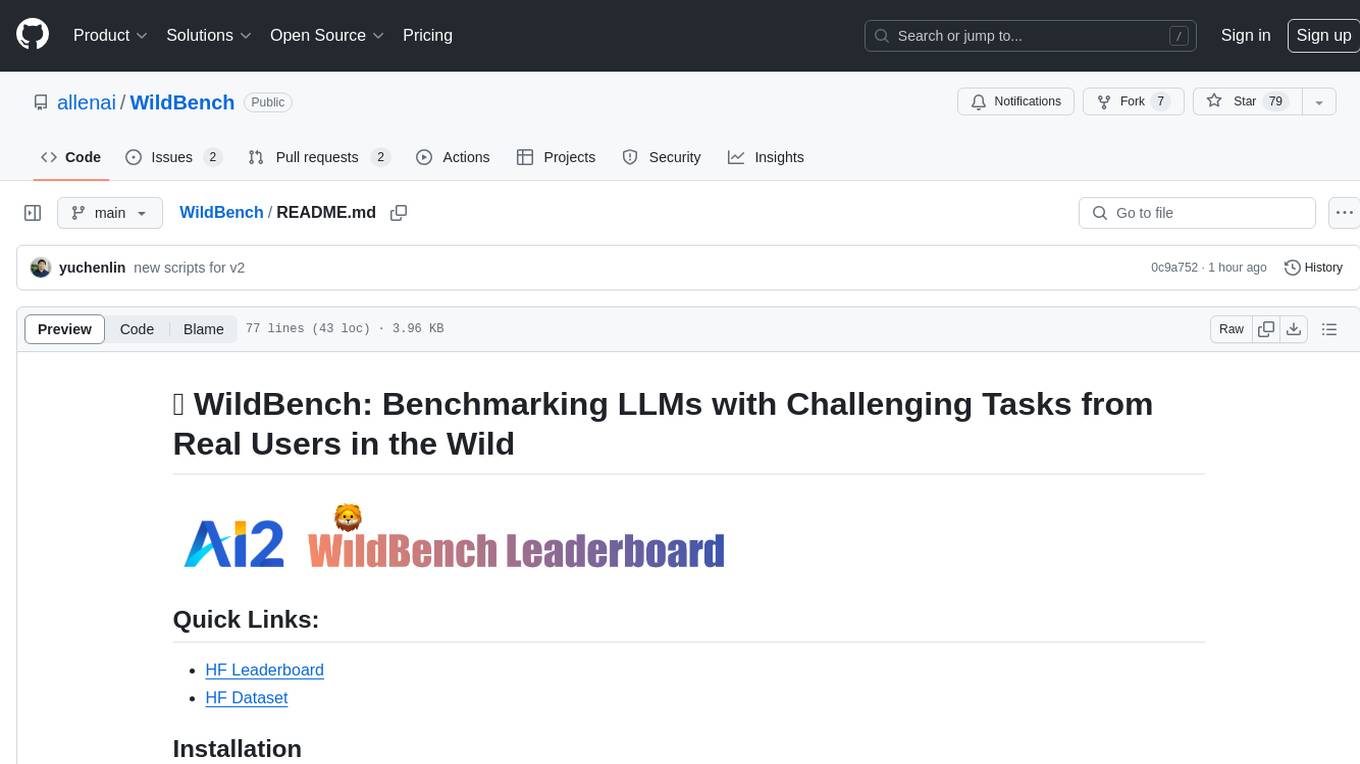
WildBench
WildBench is a tool designed for benchmarking Large Language Models (LLMs) with challenging tasks sourced from real users in the wild. It provides a platform for evaluating the performance of various models on a range of tasks. Users can easily add new models to the benchmark by following the provided guidelines. The tool supports models from Hugging Face and other APIs, allowing for comprehensive evaluation and comparison. WildBench facilitates running inference and evaluation scripts, enabling users to contribute to the benchmark and collaborate on improving model performance.
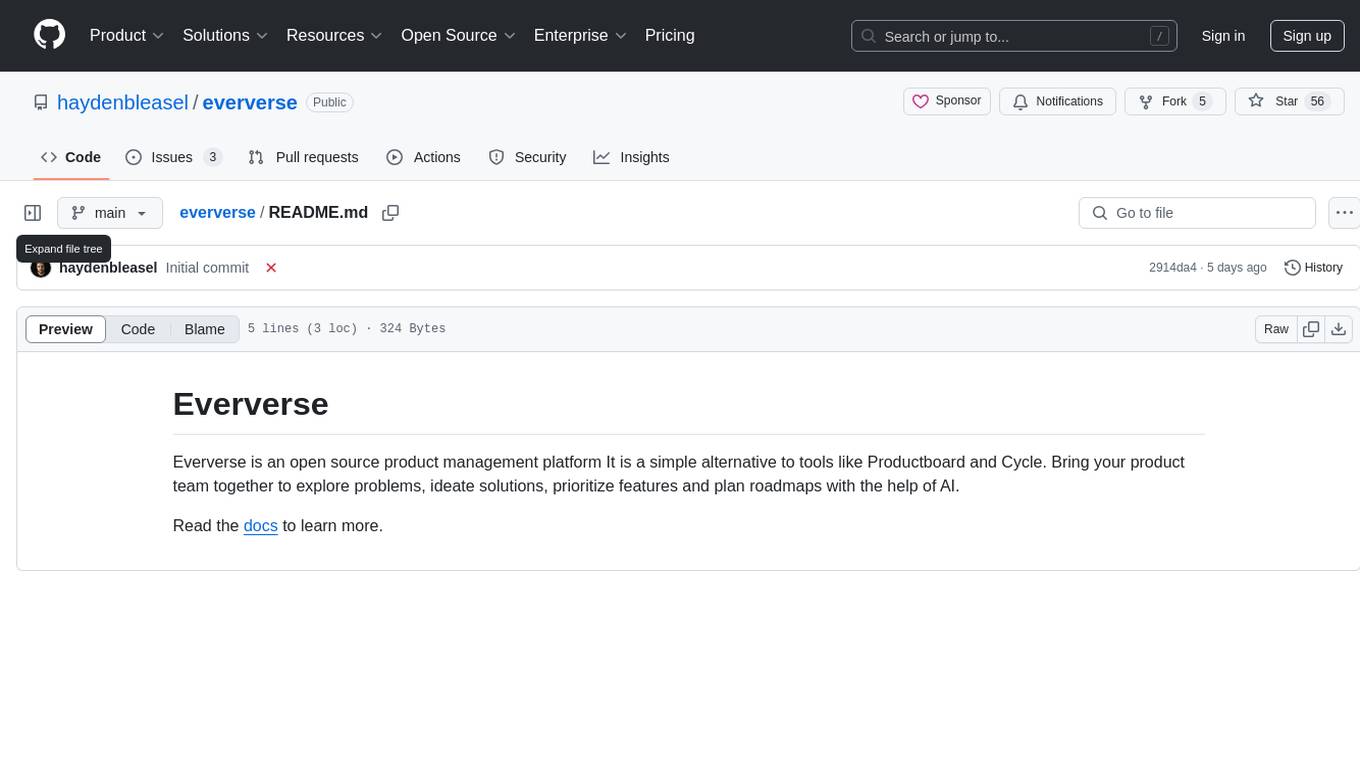
eververse
Eververse is an open source product management platform that provides a simple alternative to tools like Productboard and Cycle. It allows product teams to collaborate on exploring problems, ideating solutions, prioritizing features, and planning roadmaps with the assistance of AI.
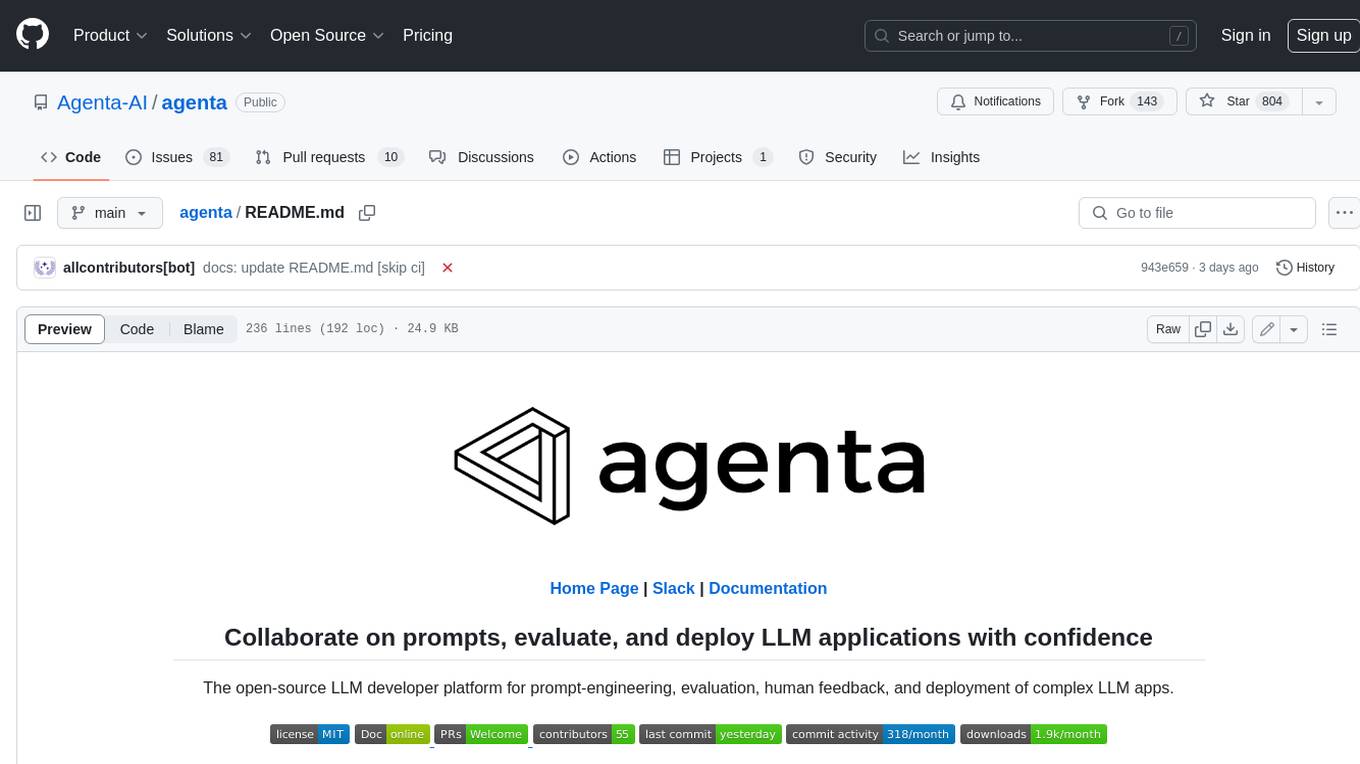
agenta
Agenta is an open-source LLM developer platform for prompt engineering, evaluation, human feedback, and deployment of complex LLM applications. It provides tools for prompt engineering and management, evaluation, human annotation, and deployment, all without imposing any restrictions on your choice of framework, library, or model. Agenta allows developers and product teams to collaborate in building production-grade LLM-powered applications in less time.
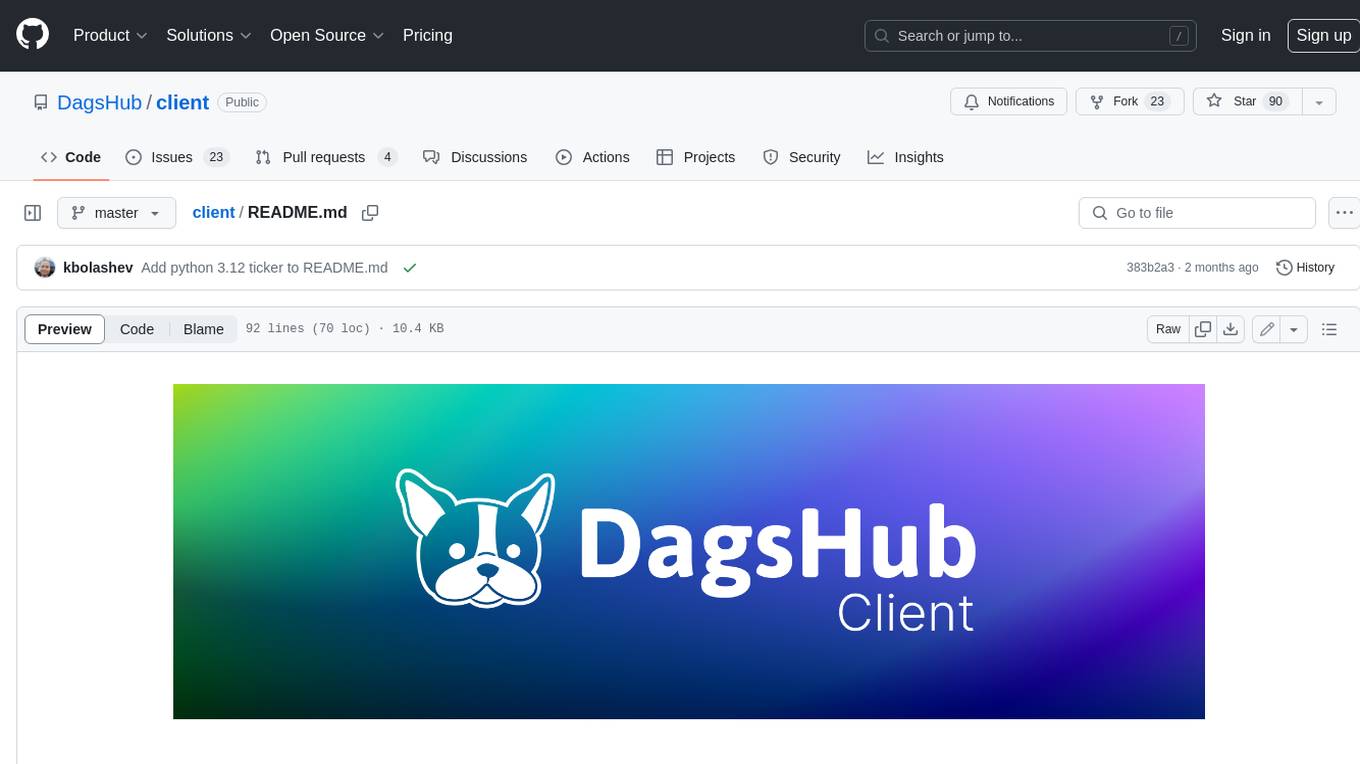
client
DagsHub is a platform for machine learning and data science teams to build, manage, and collaborate on their projects. With DagsHub you can: 1. Version code, data, and models in one place. Use the free provided DagsHub storage or connect it to your cloud storage 2. Track Experiments using Git, DVC or MLflow, to provide a fully reproducible environment 3. Visualize pipelines, data, and notebooks in and interactive, diff-able, and dynamic way 4. Label your data directly on the platform using Label Studio 5. Share your work with your team members 6. Stream and upload your data in an intuitive and easy way, while preserving versioning and structure. DagsHub is built firmly around open, standard formats for your project. In particular: * Git * DVC * MLflow * Label Studio * Standard data formats like YAML, JSON, CSV Therefore, you can work with DagsHub regardless of your chosen programming language or frameworks.
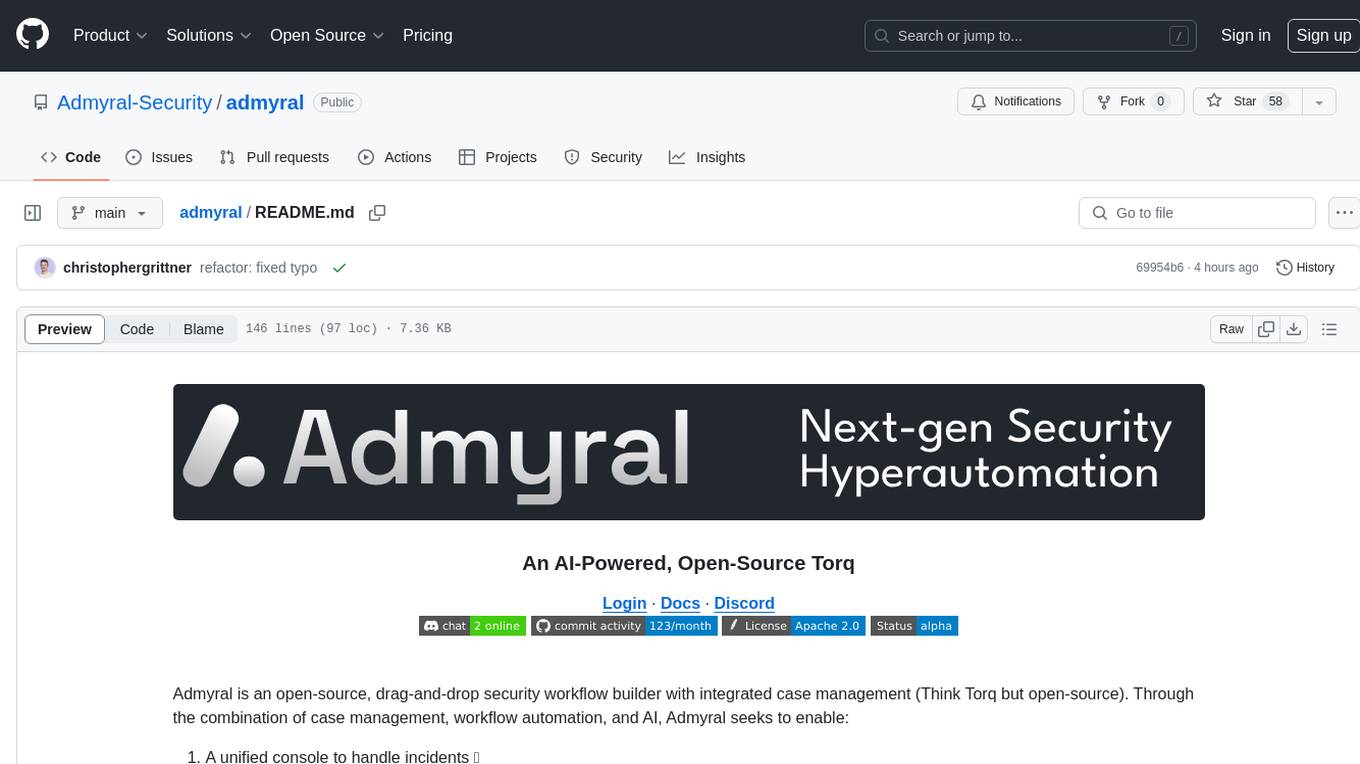
admyral
Admyral is an open-source Cybersecurity Automation & Investigation Assistant that provides a unified console for investigations and incident handling, workflow automation creation, automatic alert investigation, and next step suggestions for analysts. It aims to tackle alert fatigue and automate security workflows effectively by offering features like workflow actions, AI actions, case management, alert handling, and more. Admyral combines security automation and case management to streamline incident response processes and improve overall security posture. The tool is open-source, transparent, and community-driven, allowing users to self-host, contribute, and collaborate on integrations and features.
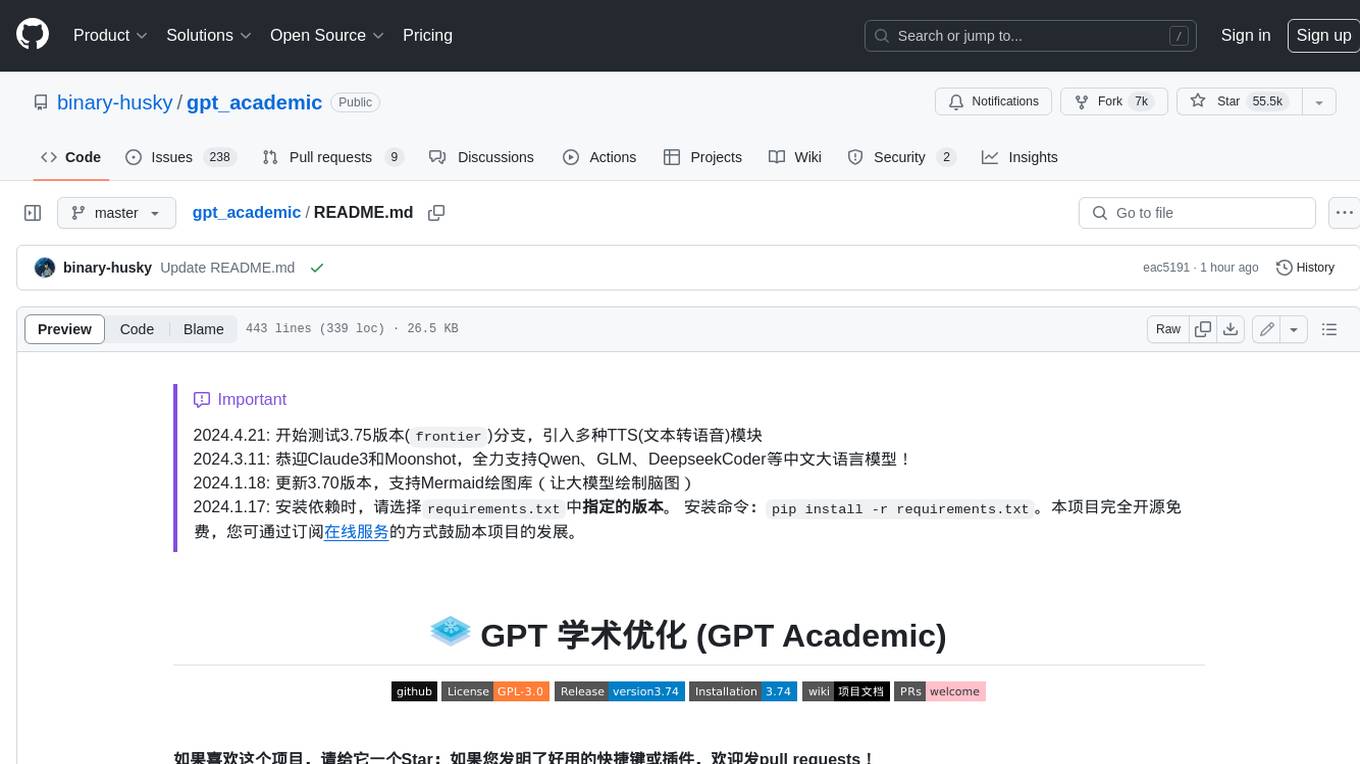
gpt_academic
GPT Academic is a powerful tool that leverages the capabilities of large language models (LLMs) to enhance academic research and writing. It provides a user-friendly interface that allows researchers, students, and professionals to interact with LLMs and utilize their abilities for various academic tasks. With GPT Academic, users can access a wide range of features and functionalities, including: * **Summarization and Paraphrasing:** GPT Academic can summarize complex texts, articles, and research papers into concise and informative summaries. It can also paraphrase text to improve clarity and readability. * **Question Answering:** Users can ask GPT Academic questions related to their research or studies, and the tool will provide comprehensive and well-informed answers based on its knowledge and understanding of the relevant literature. * **Code Generation and Explanation:** GPT Academic can generate code snippets and provide explanations for complex coding concepts. It can also help debug code and suggest improvements. * **Translation:** GPT Academic supports translation of text between multiple languages, making it a valuable tool for researchers working with international collaborations or accessing resources in different languages. * **Citation and Reference Management:** GPT Academic can help users manage their citations and references by automatically generating citations in various formats and providing suggestions for relevant references based on the user's research topic. * **Collaboration and Note-Taking:** GPT Academic allows users to collaborate on projects and take notes within the tool. They can share their work with others and access a shared workspace for real-time collaboration. * **Customizable Interface:** GPT Academic offers a customizable interface that allows users to tailor the tool to their specific needs and preferences. They can choose from a variety of themes, adjust the layout, and add or remove features to create a personalized workspace. Overall, GPT Academic is a versatile and powerful tool that can significantly enhance the productivity and efficiency of academic research and writing. It empowers users to leverage the capabilities of LLMs and unlock new possibilities for academic exploration and knowledge creation.
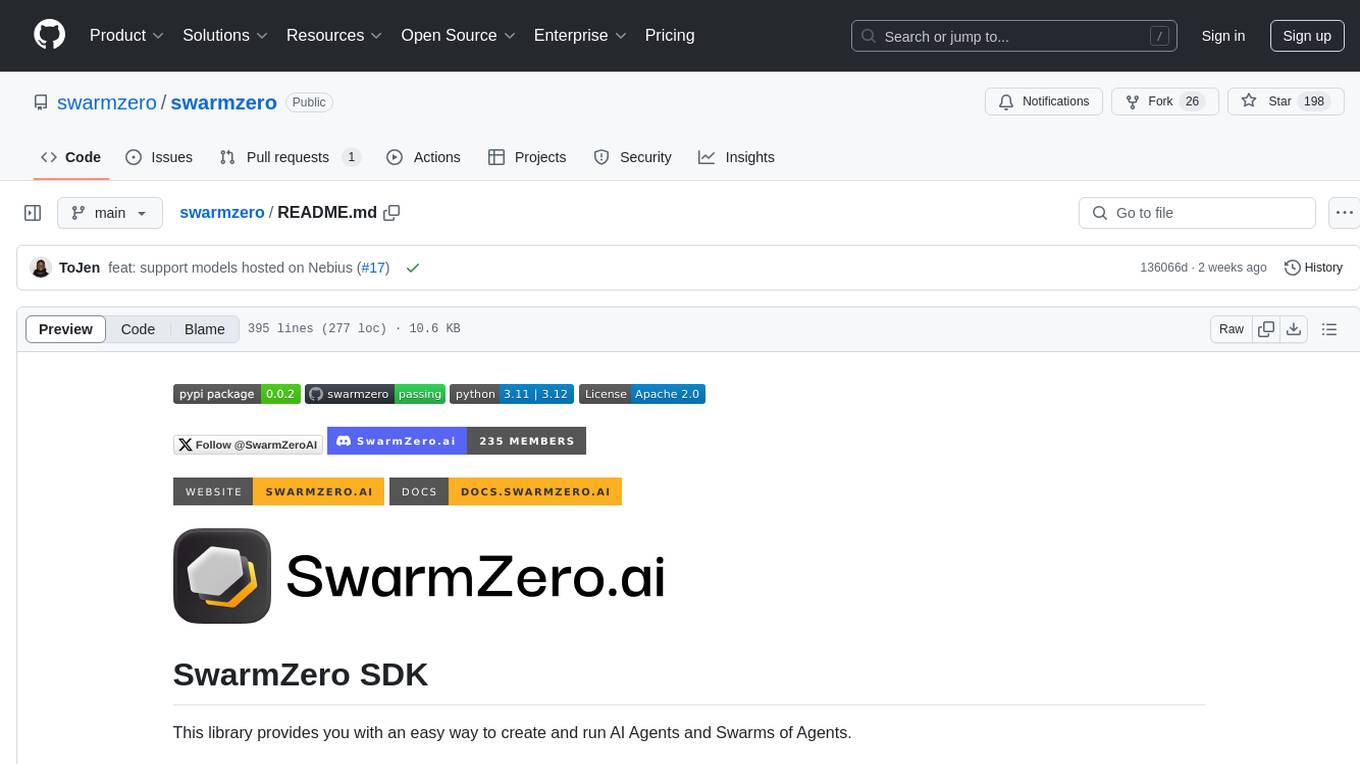
swarmzero
SwarmZero SDK is a library that simplifies the creation and execution of AI Agents and Swarms of Agents. It supports various LLM Providers such as OpenAI, Azure OpenAI, Anthropic, MistralAI, Gemini, Nebius, and Ollama. Users can easily install the library using pip or poetry, set up the environment and configuration, create and run Agents, collaborate with Swarms, add tools for complex tasks, and utilize retriever tools for semantic information retrieval. Sample prompts are provided to help users explore the capabilities of the agents and swarms. The SDK also includes detailed examples and documentation for reference.
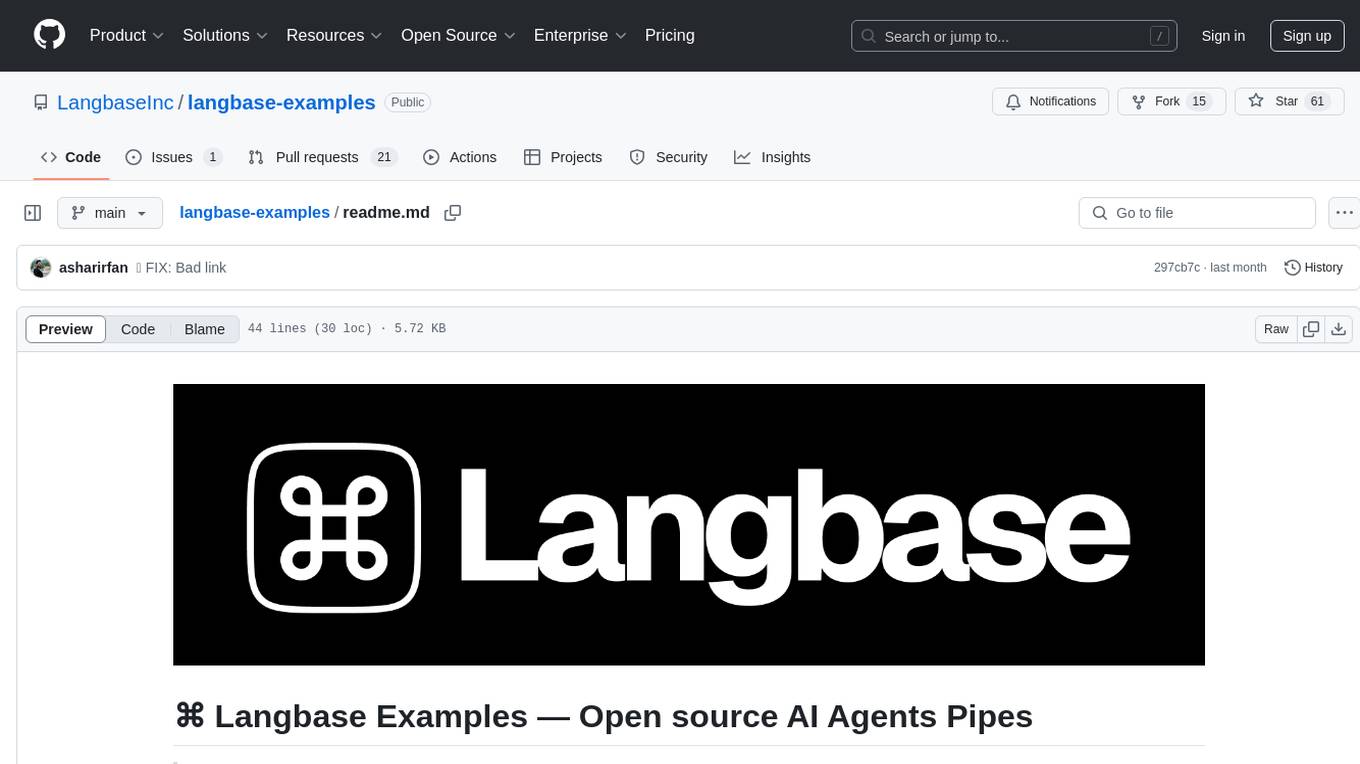
langbase-examples
Langbase Examples is an open-source repository showcasing projects built using Langbase, a composable AI infrastructure for creating and deploying AI agents with hyper-personalized memory. Langbase offers AI Pipes for building custom AI agents as APIs and Memory (RAG) for managed search engine capabilities. The platform also includes AI Studio for collaboration and deployment of AI projects, providing a complete AI developer platform for teams to work together on building and deploying AI features.
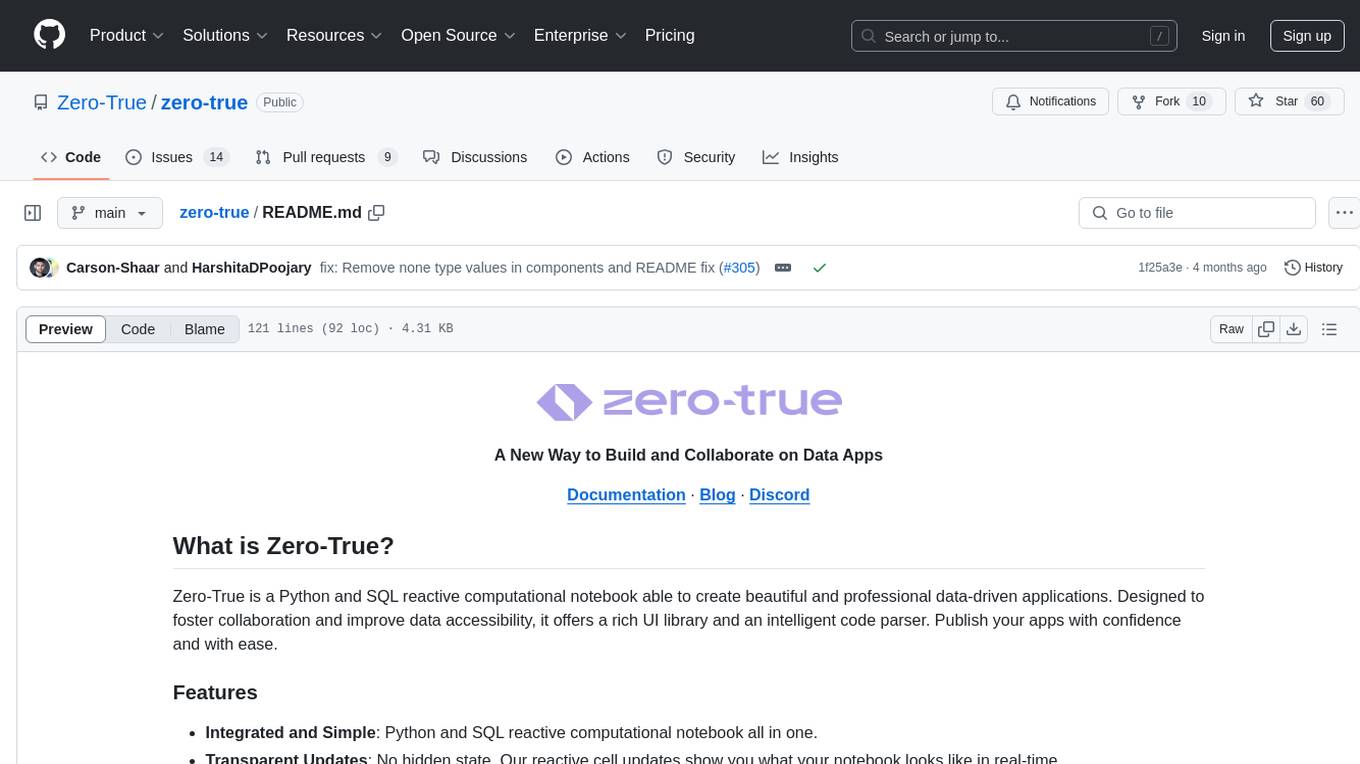
zero-true
Zero-True is a Python and SQL reactive computational notebook designed for building and collaborating on data-driven applications. It offers an integrated and simple environment with transparent updates, dynamic and interactive UI rendering, fast prototyping capabilities, and open-source community contributions. Users can create rich, reactive apps with ease and publish them confidently. Zero-True aims to improve data accessibility and foster collaboration among users.

pezzo
Pezzo is a fully cloud-native and open-source LLMOps platform that allows users to observe and monitor AI operations, troubleshoot issues, save costs and latency, collaborate, manage prompts, and deliver AI changes instantly. It supports various clients for prompt management, observability, and caching. Users can run the full Pezzo stack locally using Docker Compose, with prerequisites including Node.js 18+, Docker, and a GraphQL Language Feature Support VSCode Extension. Contributions are welcome, and the source code is available under the Apache 2.0 License.
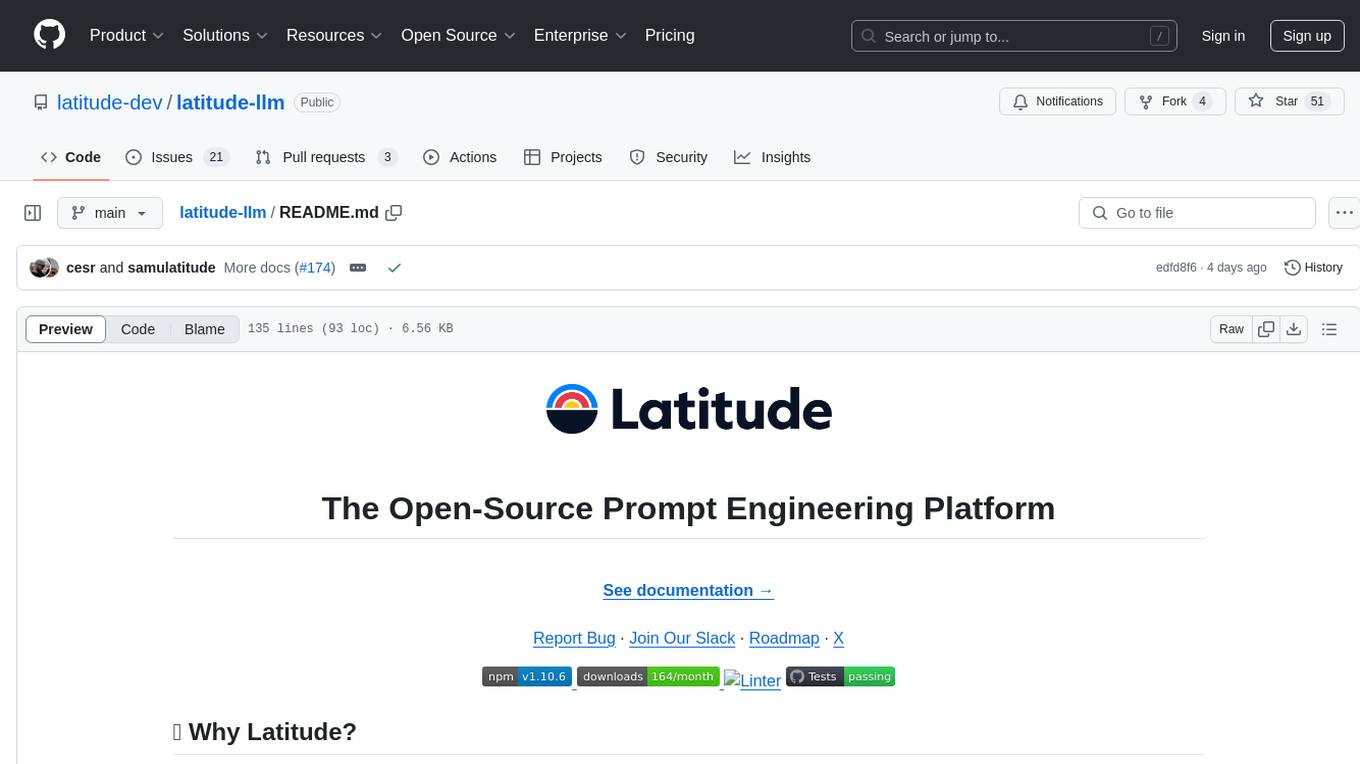
latitude-llm
Latitude is an open-source prompt engineering platform that helps developers and product teams build AI features with confidence. It simplifies prompt management, aids in testing AI responses, and provides detailed analytics on request performance. Latitude offers collaborative prompt management, support for advanced features, version control, API and SDKs for integration, observability, evaluations in batch or real-time, and is community-driven. It can be deployed on Latitude Cloud for a managed solution or self-hosted for control and customization.
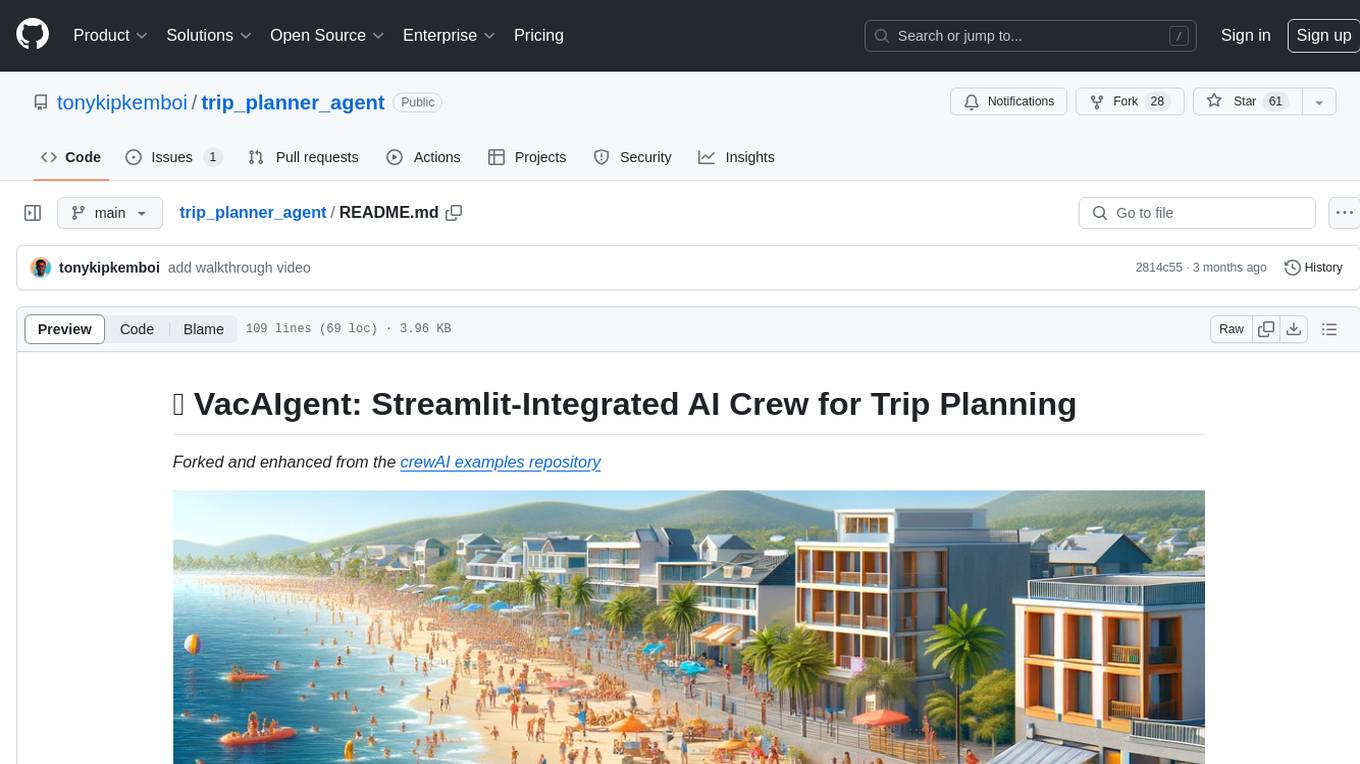
trip_planner_agent
VacAIgent is an AI tool that automates and enhances trip planning by leveraging the CrewAI framework. It integrates a user-friendly Streamlit interface for interactive travel planning. Users can input preferences and receive tailored travel plans with the help of autonomous AI agents. The tool allows for collaborative decision-making on cities and crafting complete itineraries based on specified preferences, all accessible via a streamlined Streamlit user interface. VacAIgent can be customized to use different AI models like GPT-3.5 or local models like Ollama for enhanced privacy and customization.
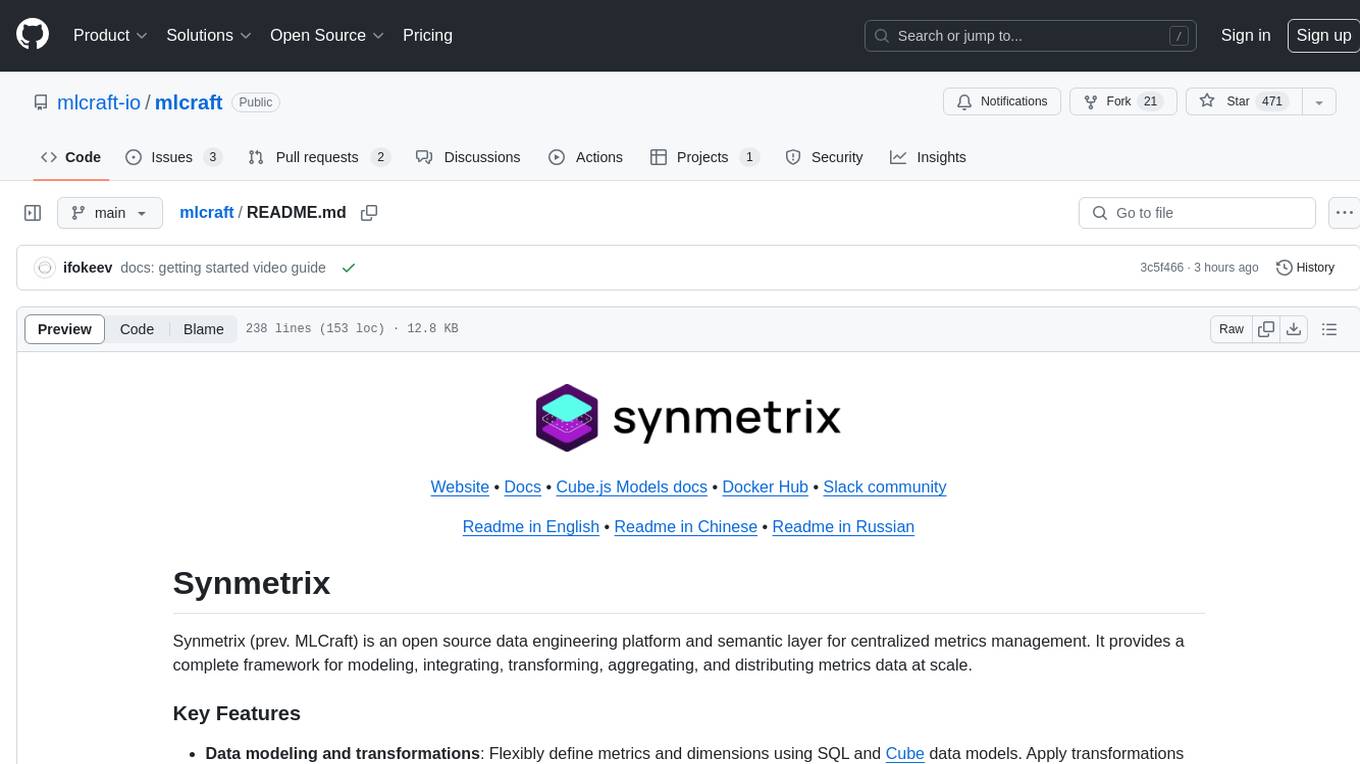
mlcraft
Synmetrix (prev. MLCraft) is an open source data engineering platform and semantic layer for centralized metrics management. It provides a complete framework for modeling, integrating, transforming, aggregating, and distributing metrics data at scale. Key features include data modeling and transformations, semantic layer for unified data model, scheduled reports and alerts, versioning, role-based access control, data exploration, caching, and collaboration on metrics modeling. Synmetrix leverages Cube (Cube.js) for flexible data models that consolidate metrics from various sources, enabling downstream distribution via a SQL API for integration into BI tools, reporting, dashboards, and data science. Use cases include data democratization, business intelligence, embedded analytics, and enhancing accuracy in data handling and queries. The tool speeds up data-driven workflows from metrics definition to consumption by combining data engineering best practices with self-service analytics capabilities.
20 - OpenAI Gpts
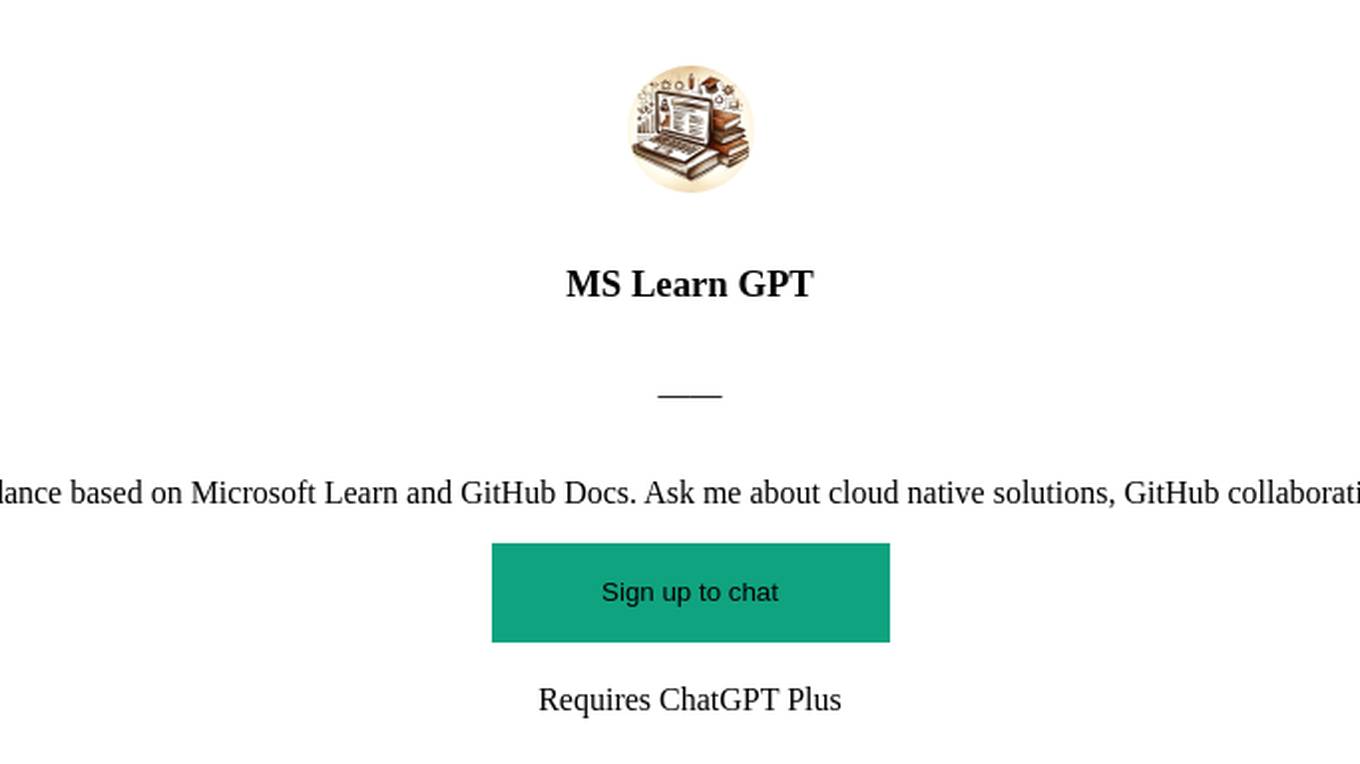
MS Learn GPT
Factual, clear guidance based on Microsoft Learn and GitHub Docs. Ask me about cloud native solutions, GitHub collaboration or certifications.

Kisau Insights
Advice on fashion photography, photoshoot collaboration, and portfolio tips.

TiddlyWiki Guide
A TiddlyWiki expert providing detailed guidance on its usage and features.
Obsidian Expert
An expert in assisting with Obsidian, providing clear guidance and practical solutions.
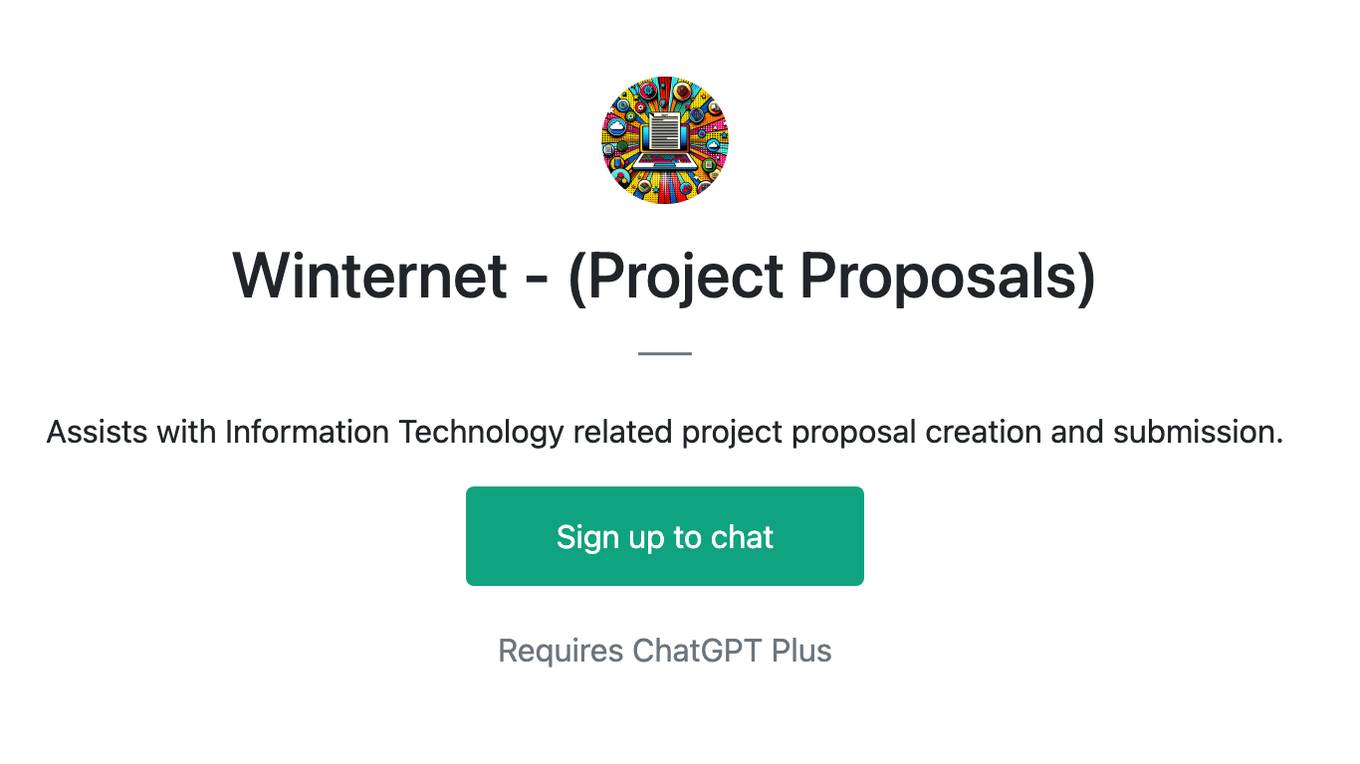
Winternet - (Project Proposals)
Assists with Information Technology related project proposal creation and submission.
